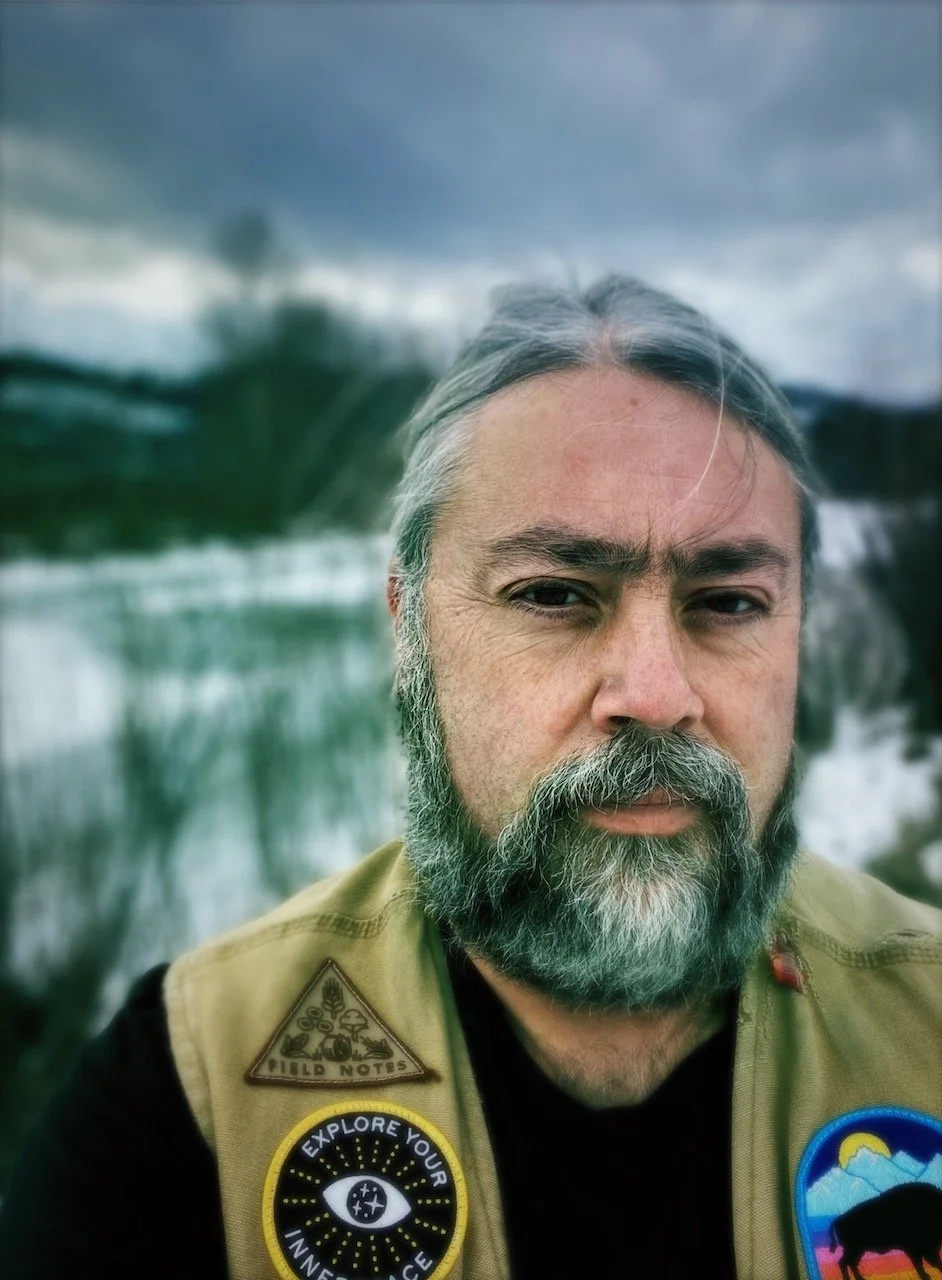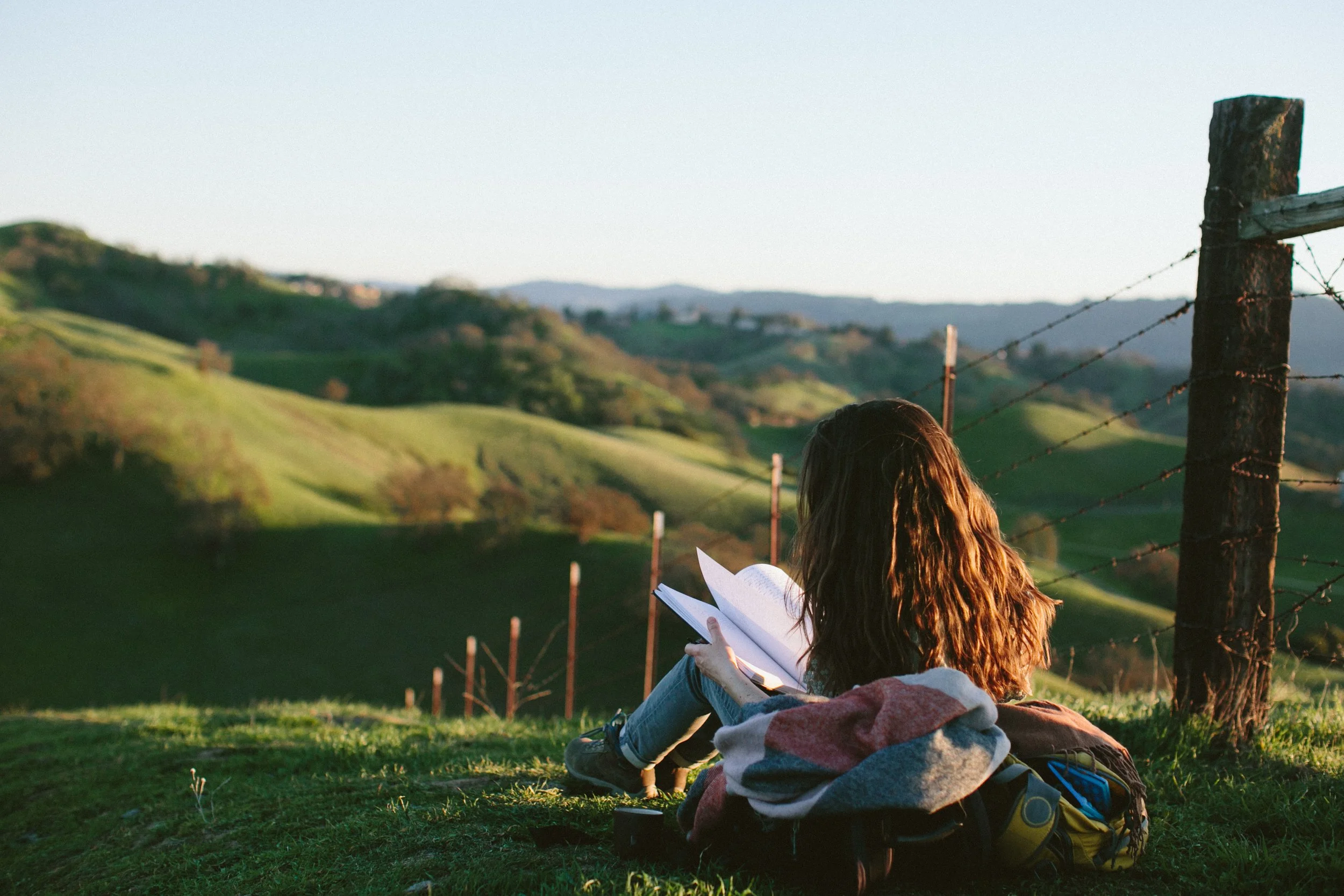
Our Guides
-

Krissy Kludt
EXECUTIVE DIRECTOR + GUIDE
Poet Krissy Kludt is the founder and Executive Director of Writing the Wild. Her debut poetry collection, I Could Walk Forever and Know So Little, is forthcoming from Green Writers Press in March 2026. Her work appears or is forthcoming in anthologies Taking Liberties (Cutthroat 2025), The Nature of Our Times (Paloma Press 2025), and Stories from the Trail (Wayfarer Books 2024) and in publications such as Humana Obscura, The Wildness We Tend, and Tremblings. She guides retreats and workshops on writing, creativity, and nature connection. She is a convener, and as a former public-school teacher she brings a holistic learning approach to each experience she guides. She is most at home in the hills; after two decades in California, she and her family now reside in the Driftless region of southwestern Wisconsin.
-
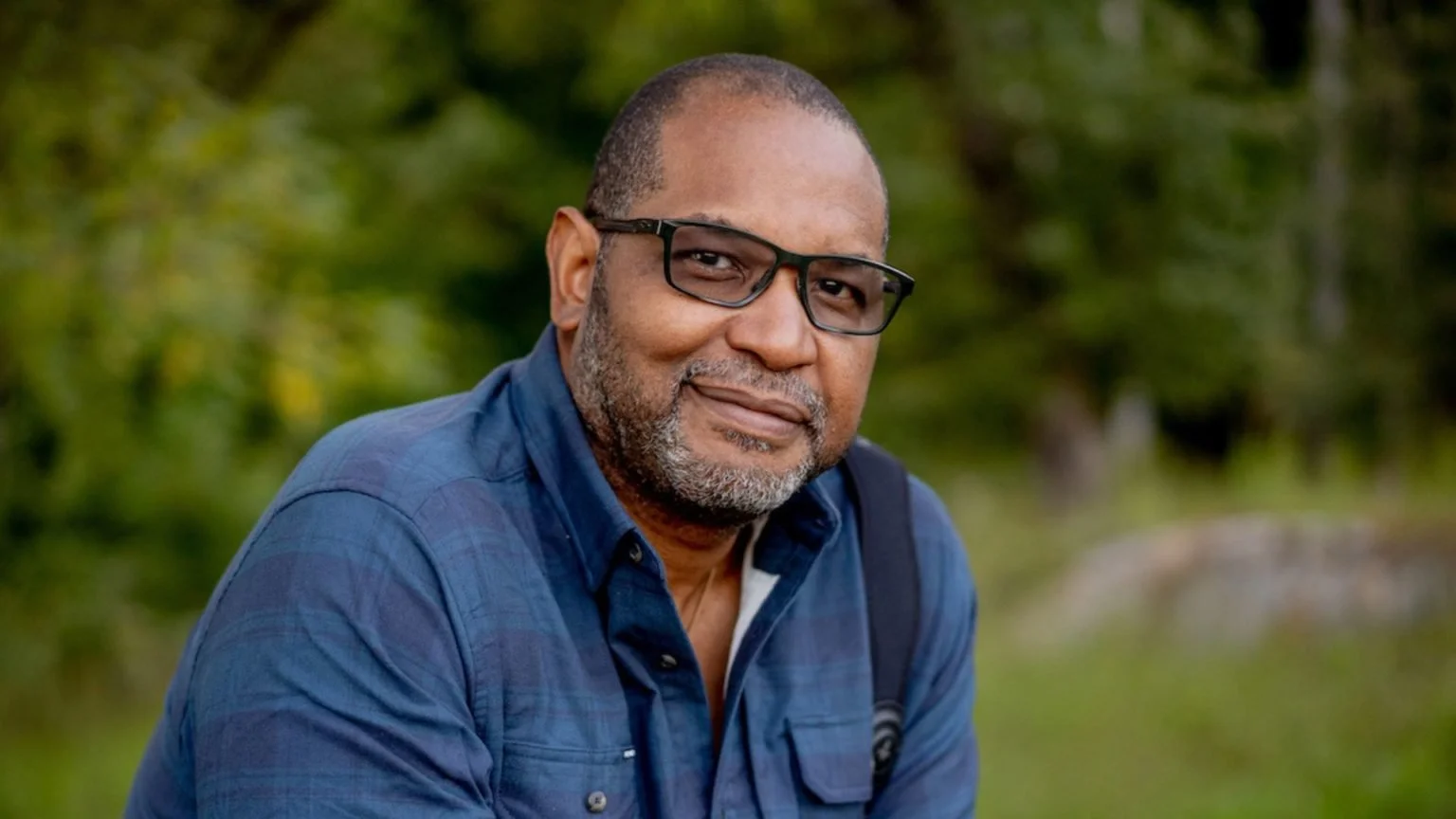
J. Drew Lanham
CO-DIRECTOR + GUIDE
J. Drew Lanham , PhD, is a creator; a poet, a writer, a curator and a libbretist. He is a naturalist/bird-adorer/hunter/conservationist/farmer who blends wild ecology into the social context of human being, past present and future. Drew is also a Certified Wildlife Biologist and a Distinguished Alumni Professor of cultural and conservation ornithology at Clemson University. He is the Poet Laureate of Edgefield, SC and the author of Sparrow Envy - Field Guide to Birds and Lesser Beasts (Hub City 2021) and the award-winning, The Home Place - Memoirs of a Colored Man's Love Affair with Nature (Milkweed Editions 2016). Drew's academic and artist work centers on ethnic perspectives of wildness and conservation. Drew's creative work and opinion appears abundantly online and in print in venues such as Orion, Emergence, Vanity Fair, Oxford American, High Country News, Bitter Southerner, Cutthroat, Terrain, Places Journal, Literary Hub, Newsweek, Slate, NPR, Story Corps, Audubon, Sierra Magazine, Mud Review, The New York Times, American Bird Conservancy, Leopold Outlook , Flycatcher Journal, Patagonia "This is Love", "Threshold" , and "On Being" podcasts. His online presence on YouTube as well as social media is extensive. Drew has been featured in Garden and Gun Magazine and Clemson World. He teaches writing workshops in creative non-fiction for Bread Loaf Environmental Writer's Conference, Northwoods Writer's Conference, Elk River Writer's Conference and Orion. He is an editor for Cutthroat Journal, a contributing editor for Orion Magazine and on the editorial board of Terrain Magazine. He is Co-Director of the online workshop "Writing the Wild," and his work is reposited in the Sowell Family Archives at Texas Tech University. Drew is a 2022 MacArthur Fellow living on a 46-acre farm in the Dark Corner of South Carolina, where he claims a mission of "Cultivating words and wildness.” His most recent work, Joy is the Justice We Give Ourselves (Hub City 2024), is a lyrical treatment on deep ornithology, redefining wildness, and pushing "good trouble" past narrowed minds while celebrating his intensely southern rural Blackness. Drew's favorite birds are the wild ones with feathers.
2024-2025 Guests
-

Abby Sunde
COLLABORATING ARTIST
Abby Sunde is an artist whose work centers around our relationships with nature and predominantly works in glassworking, drawing, sound art, and installations. She was raised on Anishinaabe ceded territory of Northcentral Wisconsin and is currently living in Rhode Island. She is a direct descendant of the Fond du Lac Band of Lake Superior Chippewa and is also of Scandinavian/European-American descent. Sunde's practice explores the ways in which we might reconnect to the ancestral, embodied knowledge of nature that our minds may have forgotten. Societally, we have become deeply removed from our connections with the land - Sunde seeks to explore this undoing. Informed by decolonial theory, indigenous epistemologies of relationality and belonging, and land-based pedagogies, she is interested in the cycles of the earth and how those cycles act as tethering points to our histories and the natural phenomena around us. Sunde earned her BA in Biology and Environmental Sciences from the University of Minnesota - Morris in 2013. Recently returning to school, she received here AFA in Studio Art at Normandale Community College in 2022, her BFA in Studio Art from University of Wisconsin Madison in 2024 and is currently pursuing her MFA in Glass at the Rhode Island School of Design as a Society of Presidential Fellow and LoveFrom Scholar.
-

Amie Adams
ZINE EDITOR & PROGRAM SUPPORT
Amie Adams (she/her) is a poet and essayist writing at the intersection of nature, place, and history. Her work is rooted in the Midwest, where diverse ecologies persist within a fragmented landscape. In addition to serving as the editor for The Wildness We Tend Vol. 3 (forthcoming from Writing the Wild, 2026), Amie's editorial projects include: Stories of the Seasons: A WFAN Zine, (2024) and Between Two Rivers: An Iowa Field Guide Series (2025). Her essays have appeared in The Wildness We Tend, Flyway, Midwest Review, Relief Journal, and the anthology Awake in the World Vol. 3 (Riverfeet Press, 2023), among others, and have received nominations for the Pushcart Prize & Best of the Net. Known for her penchant to pursue many passions at once, you are equally likely to find Amie leading a writing workshop in a prairie, editing a zine, growing vegetables, facilitating a communal art project, making jam, or reading a book.
-

Annie Wenstrup
READING & INTERVIEW GUEST
Annie Wenstrup (Dena’ina) is the author of The Museum of Unnatural Histories (Wesleyan University Press March 2025). She is the recipient of a 2025 Whiting Award in poetry. In 2023, she received the Alaska Literary Award and support from the Rasmuson Foundation. Annie was an inaugural and returning Indigenous Nations Poets Fellow in 2022 and 2023. Her poems have been published in Alaska Quarterly Review, The New England Review, Poetry, and elsewhere. She lives in Fairbanks, Alaska with her family.
-

Camille Dungy
WORKSHOP TEACHER
Camille T. Dungy is the author of Soil: The Story of a Black Mother’s Garden. Soil was named book of the month by Hudsons Booksellers, received the 2024 Award of Excellence in Garden and Nature Writing from The Council on Botanical and Horticultural Libraries, and was on the short list for the PEN/Jean Stein Award. Dungy has also written four collections of poetry, including Trophic Cascade, winner of the Colorado Book Award, and the essay collection Guidebook to Relative Strangers: Journeys into Race, Motherhood, and History, a finalist for the National Book Critics Circle Award. She edited Black Nature: Four Centuries of African American Nature Poetry, the first anthology to bring African American environmental poetry to national attention. She also co-edited the From the Fishouse poetry anthology and served as assistant editor for Gathering Ground: Celebrating Cave Canem’s First Decade. Her work has appeared in Best American Poetry, 100 Best African American Poems, Best American Essays, The 1619 Project, All We Can Save: Truth, Courage, and Solutions for the Climate Crisis, over 40 other anthologies, plus dozens of venues including The New Yorker, Poetry, Literary Hub, The Paris Review, and Poets.org. You may know her as the host of Immaterial, a podcast from the Metropolitan Museum of Art and Magnificent Noise. A University Distinguished Professor at Colorado State University, Dungy’s honors include the Academy of American Poets Fellowship, a Guggenheim Fellowship, an American Book Award, an Honorary Doctorate from SUNY ESF, and fellowships from the NEA in both prose and poetry.
-

Chip Blake
READING & INTERVIEW GUEST
Chip Blake is an independent writer, editor, book coach, writing instructor, ghostwriter, and publishing and strategic planning consultant. From 1992 until 2003 he was the managing editor of Orion, a nonprofit magazine that focuses on nature and environment. In 2003 he became the editor-in-chief of Milkweed Editions, a nonprofit book publisher. In 2005 he returned to Orion, where he served as editor-in-chief until 2020. Books and articles he has edited have been nominated for the Pushcart Prize, the PEN Literary Award, PEN-New England Discovery Prize, the John Oakes Award in Environmental Journalism, the John Burroughs Medal, the Minnesota Book Award, the Oregon Book Award, and The New York Times Notable Book of the Year. For many years he served as a judge for the National Magazine Award and as a panelist for the National Endowment for the Arts, and he currently serves with the board of directors of the Ellen Meloy Fund for Desert Writers, the Barry Lopez Foundation, and The Thoreau Society. In 2016 he was awarded an Honorary Doctorate in Humane Letters from the State University of New York’s College of Environmental Science and Forestry. He was the founder of the Orion Writing Workshop, which was established at Sterling College in Vermont in 2005 (and subsequently moved to the Bread Loaf Writers Workshop, and then to the Omega Institute). Writers he has worked directly with over the course of his career include Wendell Berry, Carol Bly, Joseph Bruchac, Brian Doyle, David James Duncan, Jane Goodall, bell hooks, Bill Holm, Pico Iyer, Barbara Kingsolver, William Kittredge, Drew Lanham, Barry Lopez, Kathleen Dean Moore, Mary Oliver, Scott Russell Sanders, Gary Snyder, Rebecca Solnit, Kim Stafford, Katrina Vandenberg, and Terry Tempest Williams. He is also a lifelong birdwatcher and has led birding trips throughout the U.S., Europe, and Central America. His book, The Birds of the Berkshire County, will be published later this year by Cornell University Press and the Nuttall Ornithological Club. He lives in Red Hook, New York.
-
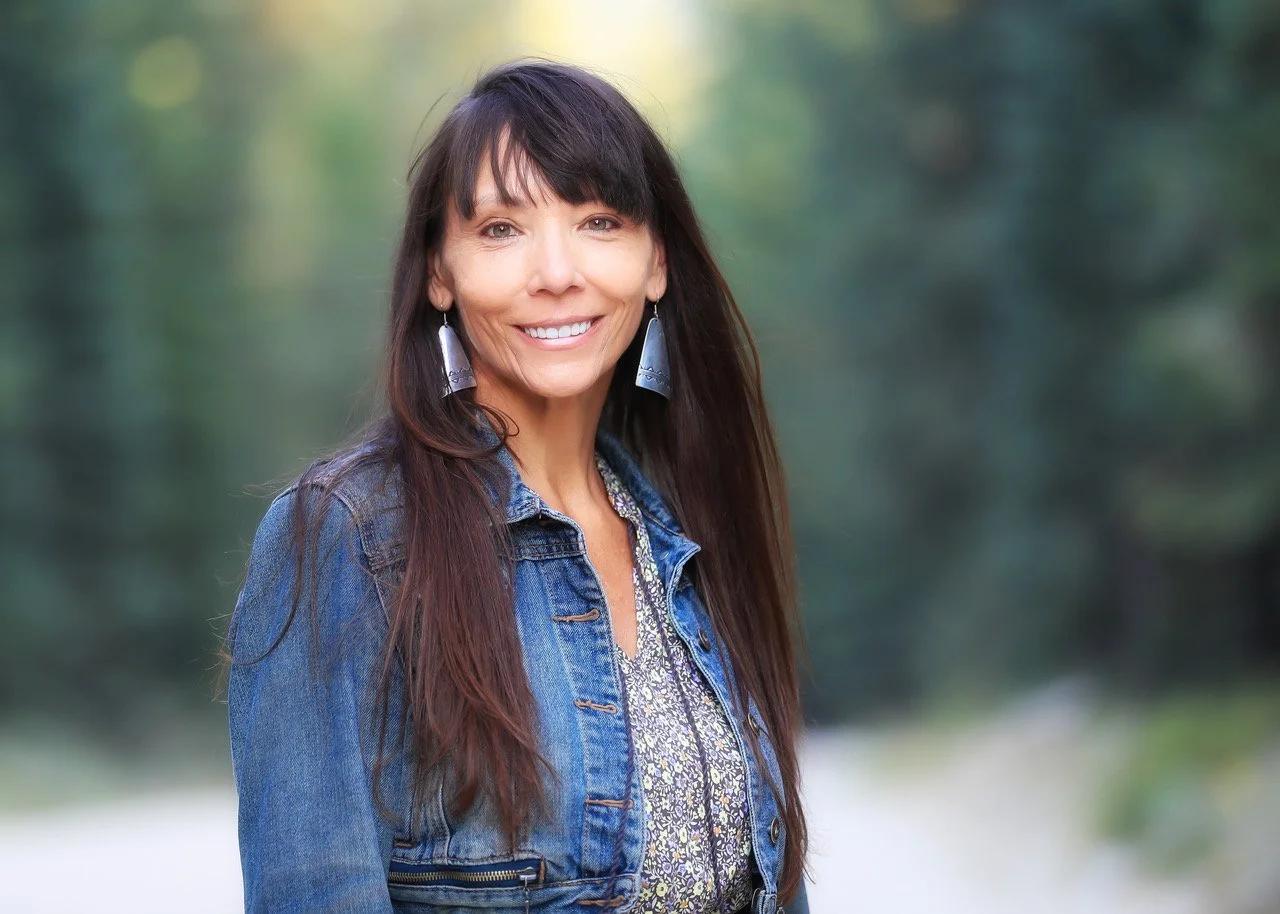
CMarie Fuhrman
WORKSHOP TEACHER
CMarie Fuhrman is a writer and educator whose work explores the connections between place, beings, culture, and the human experience. She is the author of the essay collection Salmon Weather: Writing from the Land of No Return, the poetry collection Camped Beneath the Dam: Poems, and the co-editor of Cascadia Field Guide: Art, Ecology, and Poetry and Native Voices: Indigenous Poetry, Craft, and Conversations. CMarie has published poetry, nonfiction, and fiction in prominent publications such as Terrain.org, Emergence Magazine, and Poetry Northwest, as well as various anthologies. An award-winning columnist for the Inlander, CMarie also directs the Elk River Writers Workshop. She is the Associate Director of the low residency Graduate Program in Creative Writing at Western Colorado University, where she teaches poetry and nature writing. CMarie is the host of Colorado Public Radio's Terra Firma podcast. A former Idaho Writer in Residence, she finds inspiration in the rugged beauty of her home in the Salmon River Mountains of Idaho. CMarieFuhrman.com
-
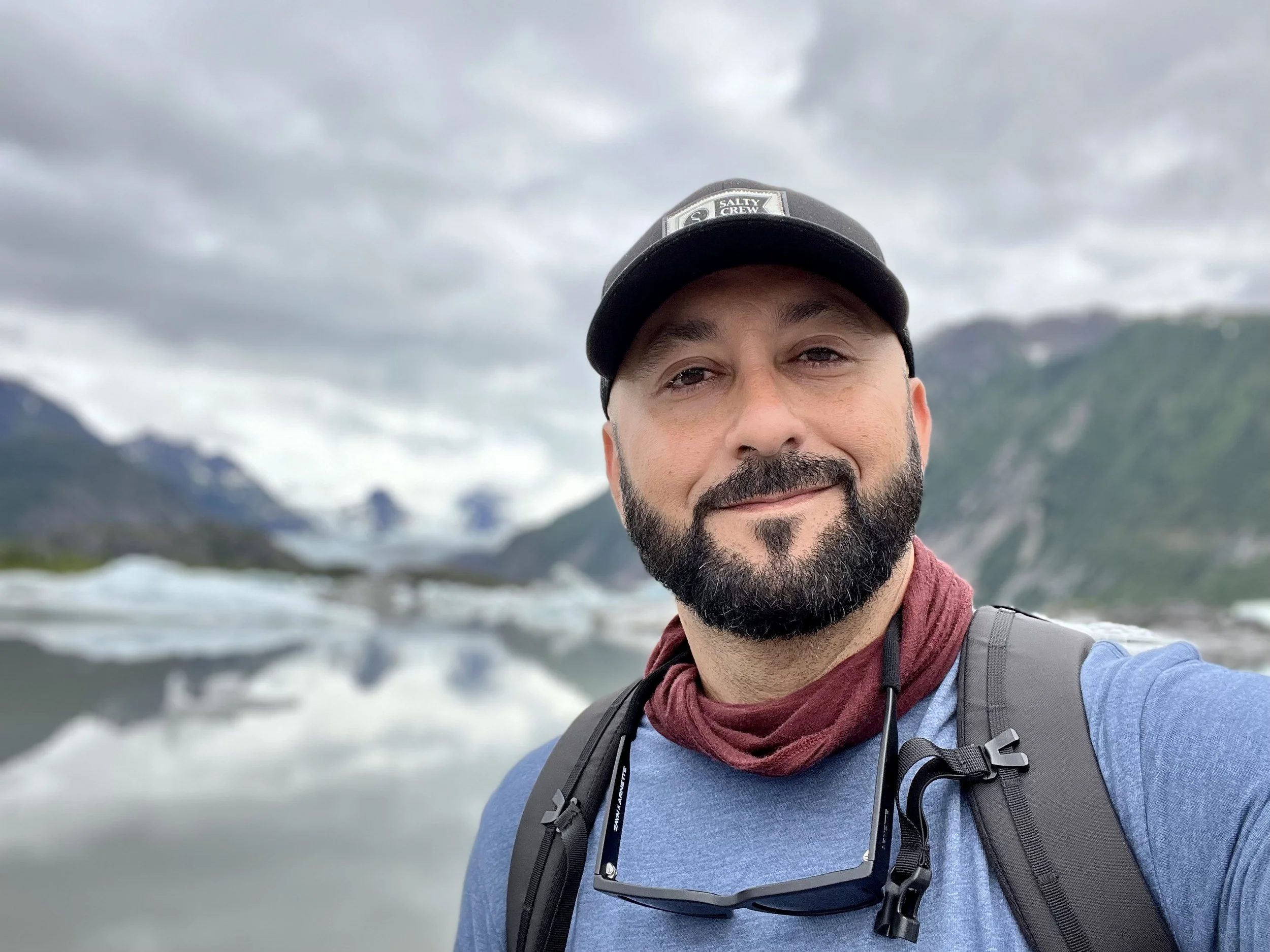
Craig Santos Perez
READING & INTERVIEW GUEST
Dr. Craig Santos Perez is a native Chamoru from the Pacific Island of Guam. He has edited nine anthologies and authored seven collections of poetry and the academic monograph, Navigating Chamoru Poetry: Indigeneity, Aesthetics, and Decolonization.
-
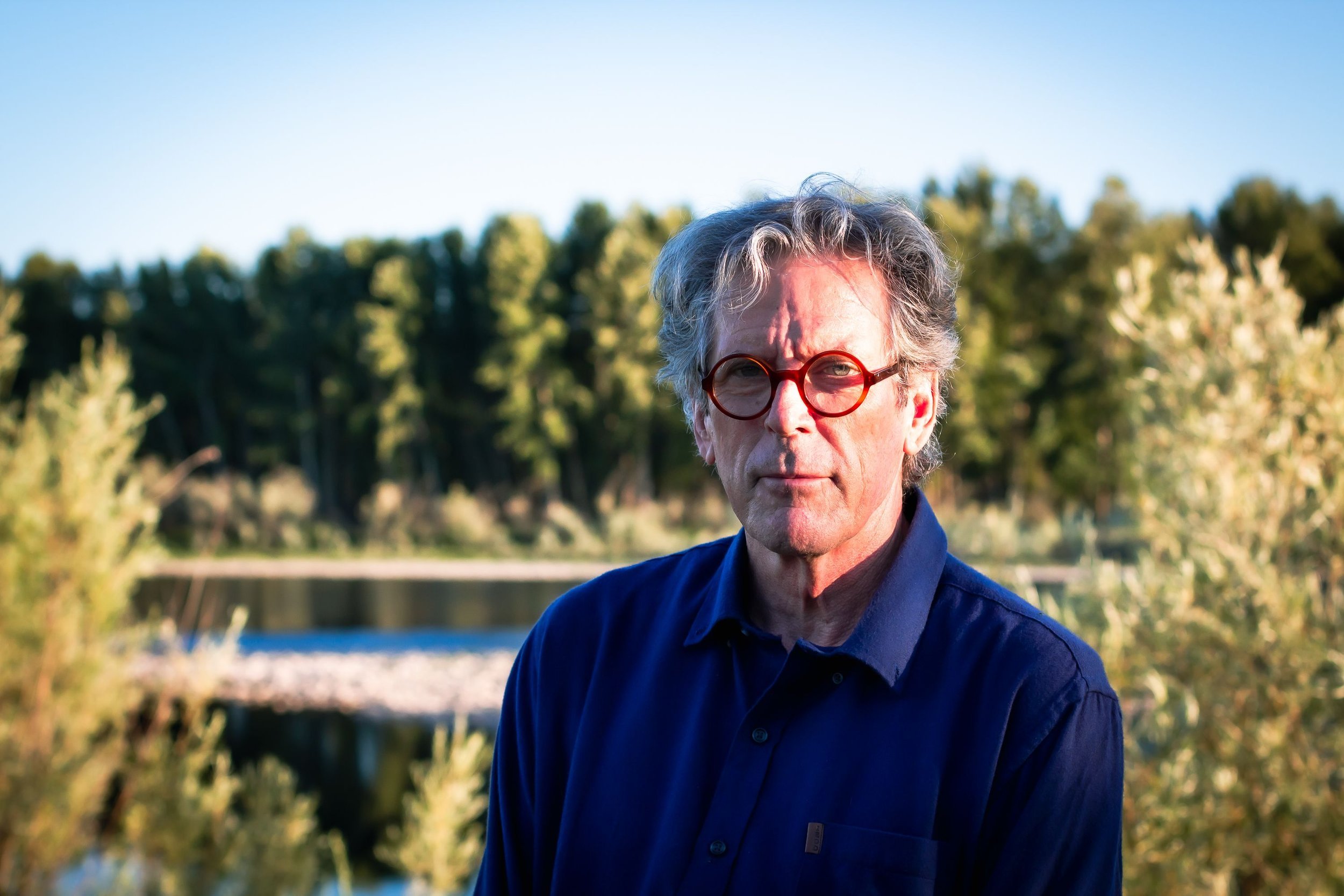
David James Duncan
LAB FACILITATOR
David James Duncan is the author of the classic novels The River Why and The Brothers K, the story collection River Teeth, the nonfiction collection and National Book Award finalist, My Story as Told by Water, the best-selling collection of “churchless sermons," God Laughs & Plays, and the novel legendary editor Michael Pietsch “will immodestly call David’s magnum opus” and writer William deBuys calls “one of the greatest imaginative achievements I’ve encountered in a lifetime of reading," Sun House. David’s work has won three Pacific Northwest Booksellers Awards, two Pushcart Prizes, a Lannan Fellowship, the Western States Book Award, inclusion in Best American Sports Writing, Best American Catholic Writing, two volumes of Best American Essays, five volumes of Best American Spiritual Writing, an honorary doctorate from University of Portland, the American Library Association's 2004 Award for the Preservation of Intellectual Freedom (with co-author Wendell Berry), and other honors. David lives on a charming little trout stream in Missoula, Montana, in accord with his late friend Jim Harrison’s advice to finish his life disguised as a creek.
-
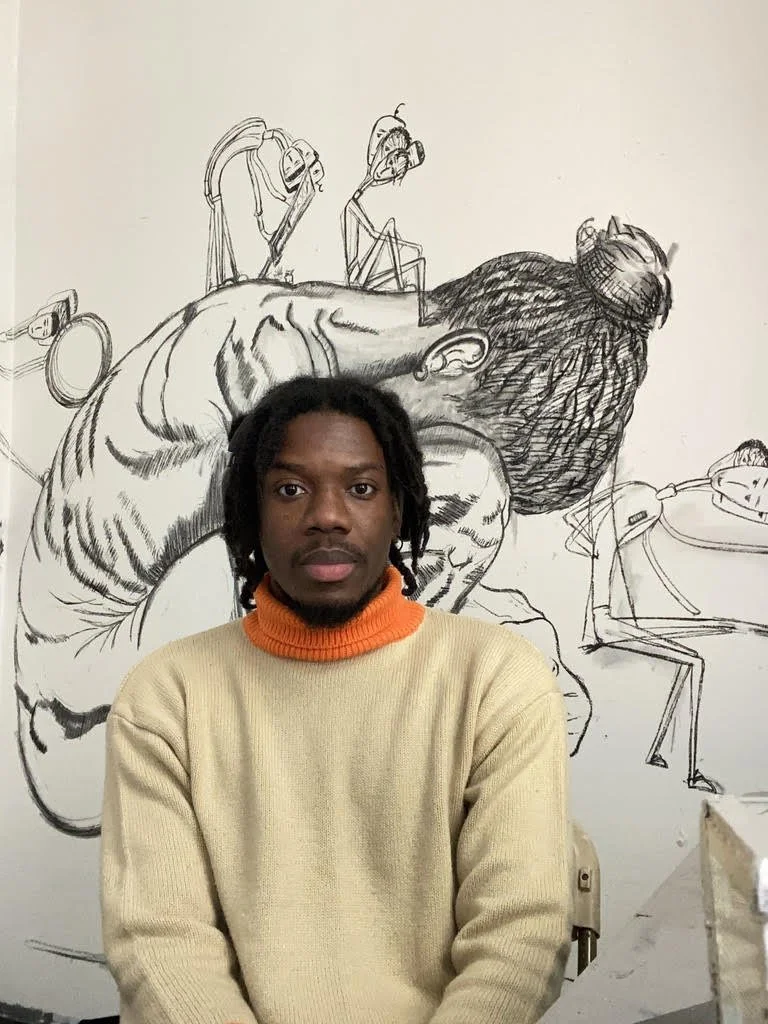
David Legrand
COLLABORATING ARTIST
David Legrand (b. 1995) is a Haitian-American artist who earned his BFA in Fine Arts from Cornell University in 2023, where he was honored with the Faculty Medal of Art. He graduated with his MFA from the Rhode Island School of Design, supported by the prestigious Society of Presidential Fellows scholarship. His art practice is interested in how rest, in its simplest form, is a biological necessity. For Black communities, rest has historically been weaponized as a site of struggle, a luxury denied through systems of racial capitalism, anti-Black violence, and colonial labor exploitation. His current practice positions rest as a radical act of resistance and reclamation within the context of Black artmaking, drawing on frameworks from Black feminist theory and critical race studies. By interrogating the politics of rest—its denial, reimagining, and aesthetic possibilities—this thesis argues that rest is not merely a personal indulgence but a collective, liberatory praxis that destabilizes Western notions of productivity and labor.
-

Elizabeth Bradfield
READING & INTERVIEW GUEST
Elizabeth Bradfield’s seven books include SOFAR: Poems, which includes poems published in The Atlantic Monthly, The Sun, and Orion; Interpretive Work, which won the Audre Lorde Prize in Lesbian Poetry; Toward Antarctica: An Exploration; and the co-created Cascadia Field Guide: Art, Ecology, Poetry, winner of a Pacific Northwest Book Award. Editor-in-chief of Broadsided and a former Wallace Stegner Fellow, Liz teaches creative writing at Brandeis University, directs the Poetry Concentration for Western Colorado University’s MFA program, and works as a naturalist and field assistant at home on Cape Cod. www.ebradfield.com
-

Farah Momen
Farah Momen is a Bangladeshi-American social entrepreneur, chef, and storyteller. Through AncestralRebel, she co-creates feasts that honor woven histories and explore how food connects us to our political, social, and personal narratives. She holds a master's degree in Business for Social Impact and Human Security from The Fletcher School at Tufts University and is the founder of Bondhu, a culinary community space centered on healing and connection. As co-founder of The Now Exchange, an NGO fostering health access in Bangladesh, and Ecosystem Development Lead at SVX US, Farah builds community, capacity, and resources for organizations creating positive change. Across all her work, she is driven by a commitment to amplifying marginalized voices and making our disconnected world feel more connected and caring.
Brooklyn, NY | Berkshires, MA
-

Felicia Zamora
LAB FACILITATOR
Felicia Zamora is the author of eight books of poetry including, Murmuration Archives, Akrilica Series, Noemi Press (2026), Interstitial Archaeology, Wisconsin Poetry Series (2025), I Always Carry My Bones, winner of the 2020 Iowa Poetry Prize (2021) and the 2022 Ohioana Book Award in Poetry, Body of Render, Benjamin Saltman Award winner (2020), and Of Form & Gather, Andrés Montoya Poetry Prize winner (2017). She’s won the Loraine Williams Poetry Prize, C.P. Cavafy Prize, Wabash Prize, Tomaž Šalamun Prize, and two Ohio Arts Council Individual Excellence Awards (2024 & 2022). She has been supported by a Tin House Next Book Residency, Yaddo Residency, Ragdale Fellowship, and CantoMundo Fellowship. Her writing appears in Academy of American Poets Poem-A-Day, Alaska Quarterly Review, The American Poetry Review, Best American Poetry 2022, Boston Review, Brevity, Ecotone, The Georgia Review, Gulf Coast, The Iowa Review, The Kenyon Review, Lit Hub, The Missouri Review, Orion, Poetry Magazine, The Nation, and others. She is a poetry editor for Colorado Review, a contributing editor for West Branch, and an associate professor of poetry at the University of Cincinnati where she is a 2025-2026 Taft Research Center Fellow.
-

Gavin Van Horn
READING & INTERVIEW GUEST
Dr. Gavin Van Horn is the executive editor of Humans and Nature Press Books, the author of The Way of Coyote, and the co-editor of City Creatures: Animal Encounters in the Chicago Wilderness, Wildness: Relations of People and Place, the award-winning five-volume series Kinship: Belonging in a World of Relations, and the five-volume series Elementals. He currently resides in the ancestral lands of the Northern Chumash people in San Luis Obispo, California, where you can find him wandering the nearby hills and shores, senses awakened by sage, Anna’s hummingbirds, and ocean funk. More about Gavin and his work can be found at www.storyforager.com.
-

Geffrey Davis
LAB FACILITATOR
Geffrey Davis is the author of three full collections of poetry: One Wild Word Away (2024), Night Angler (2019), and Revising the Storm (2014), winner of the A. Poulin Jr. Poetry Prize and a Hurston/Wright Legacy Award Finalist. He is also the author of the chapbook Begotten (URB Books, 2016), coauthored with F. Douglas Brown. His poems have been published or are forthcoming in Crazyhorse, Mississippi Review, New England Review, New York Times Magazine, The New Yorker, PBS NewsHour, Ploughshares, and elsewhere. A native of the Pacific Northwest, Davis teaches for the University of Arkansas’s MFA in Creative Writing & Translation and for The Rainier Writing Workshop low-residency MFA program.
-
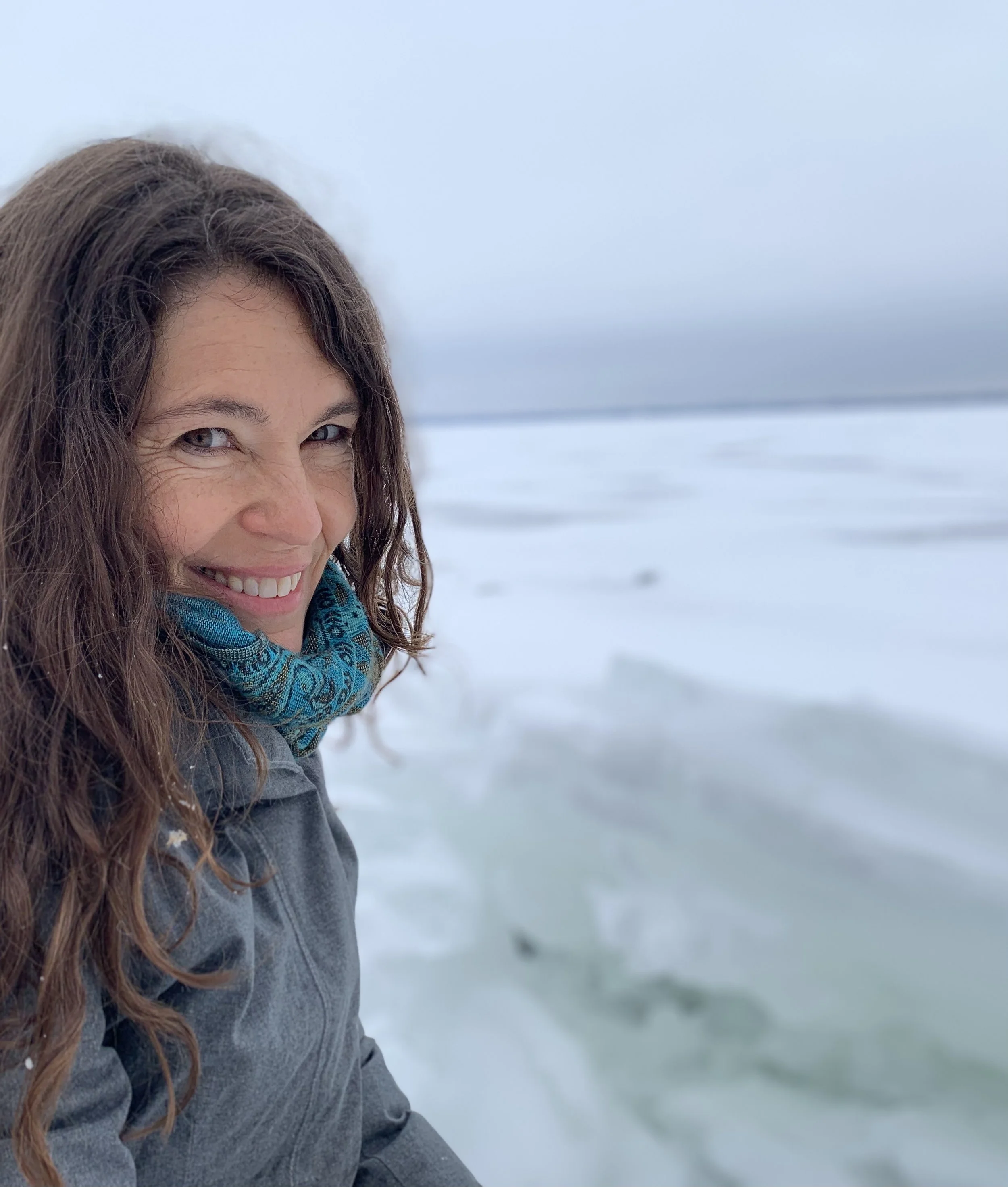
Heather Swan
WORKSHOP TEACHER
Heather Swan, MFA and PhD, is a poet and nonfiction writer. She is the author of the nonfiction books Where the Grass Still Sings: Stories of Insects and Interconnection and Where Honeybees Thrive: Stories from the Field (Penn State Press) the latter of which won the Sigurd F. Olson Nature Writing Award. Her nonfiction has appeared in such journals as The Sun, Emergence, Catapult, Aeon, and Minding Nature. Her poems have appeared in such journals as Cold Mountain, The Hopper, One Art, Poet Lore, Phoebe, The Raleigh Review, and Terrain. Her book of poems, A Kinship with Ash (Terrapin Books), published in 2020, was a finalist for the ASLE Book Award and long-listed for the Julie Suk Award. A second collection, Dandelion, was published in 2023. She is also a recipient of an Illinois Arts Council Fellowship, the Maud Weinschenk Award, the August Derleth Prize for Poetry, the John Tigges Poetry Award, A Wisconsin Fellowship of Poets Chapbook Award, and an honorable mention for the Lorine Niedecker Award. She teaches environmental literature and writing at the University of Wisconsin-Madison.
-
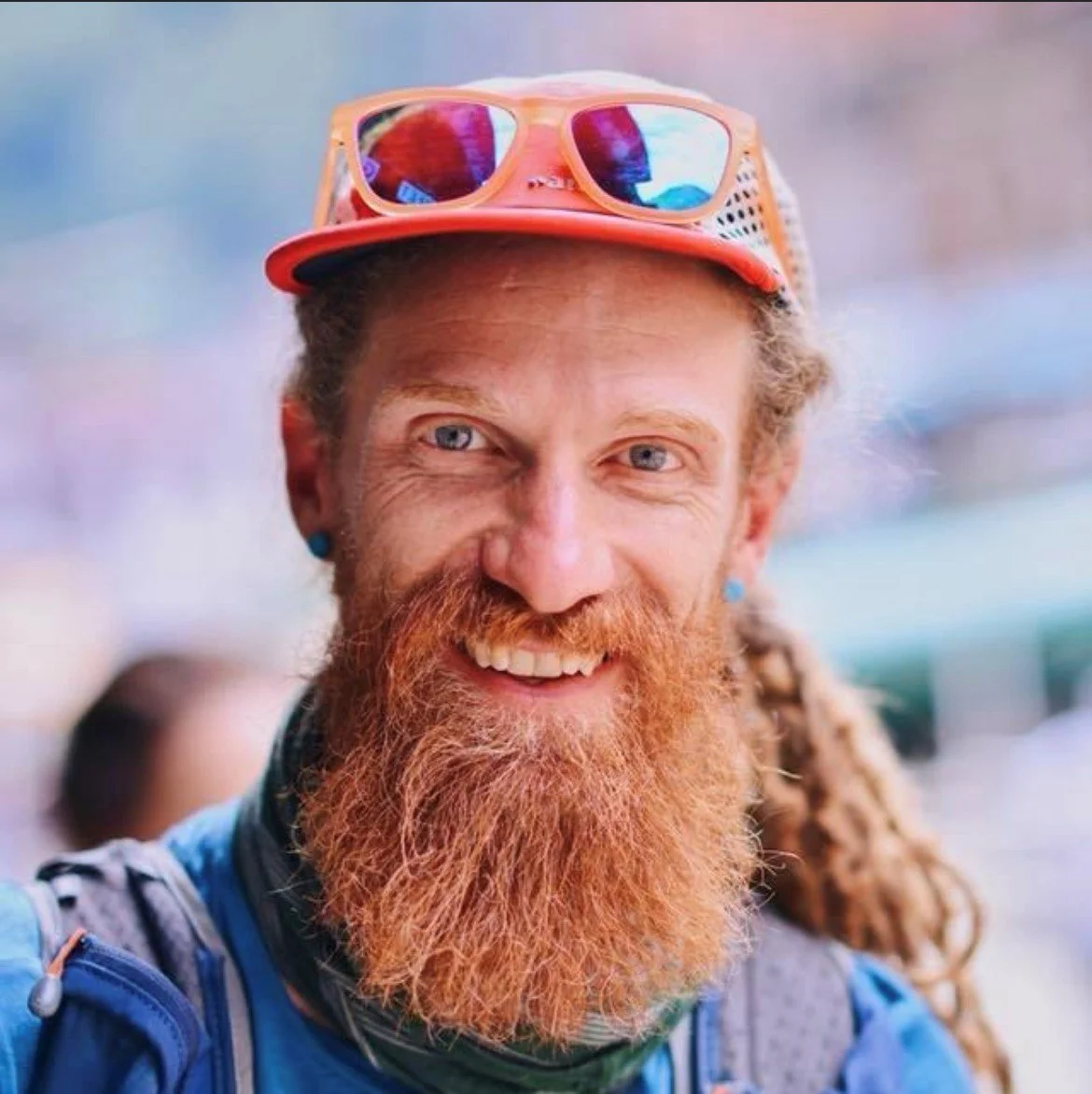
Ian Ramsey
LAB FACILITATOR
Ian Ramsey is the author of Hackable Animal, finalist for the Prism Climate Prize. His writing has been featured in Terrain.org, Orion, High Desert Journal, Backcountry Journal, Ploughshares, and many other journals, as well as in collections like The Gift of Animals, Writing for Peace, and Maine Voices. Based along the New Meadows River in midcoast Maine, Ian is the founding director of the Kauffmann Program for Environmental Writing at North Yarmouth Academy, where he has taught environmental writing, expeditioning, neuroscience and human performance, creative entrepreneurship, and music for 26 years. A licensed Maine Guide, Ian is an ultrarunner and backcountry athlete, holding the highest sea kayak leadership award in the world. He has led trips and backcountry expeditions on four continents, with a special focus on Alaska. He has lectured at Hirosaki University, Universidad Nacional Agraria La Molina, Pacific Lutheran University, and been an artist-in-residence at the Mount Saint Helens Science Center and Bainbridge Arts Festival, among other places.
-

Jamie Ford
READING & INTERVIEW GUEST
Jamie Ford is the great grandson of Nevada mining pioneer Min Chung, who emigrated from Hoiping, China, to San Francisco in 1865, where he adopted the western name “Ford,” thus confusing countless generations. Jamie’s debut novel, Hotel on the Corner of Bitter and Sweet, spent two and a half years on the New York Times bestseller list and won the 2010 Asian/Pacific American Award for Literature. It was also named the #1 Book Club pick in 2010 by the American Bookseller Association and is now read widely in schools across the country. This multi-cultural tale was adapted by Book-It Repertory Theatre and has been optioned for a stage musical in NYC, and for film, with George Takei serving as Executive Producer. An award-winning short-story writer, his work has been published in multiple anthologies, from Asian-themed steampunk set in Seattle in the Apocalypse Triptych, to stories exploring the universe of masked marvels and caped crusaders from an Asian American perspective in Secret Identities: The first Asian American Superhero Anthology. He’s also written in other genres: speculative, dystopian, crime noir, and middle-grade horror. His latest novel, The Many Daughters of Afong Moy was named the #1 IndieNext list pick for August 2022 and was a Today Show book club pick. He currently lives in Montana with his wife, two dogs, and his imaginary friends.
-

Jane Hirshfield
SPECIAL GUEST
Writing “some of the most important poetry in the world today” (The New York Times Magazine), JANE HIRSHFIELD is one of American poetry’s central spokespersons for concerns of the biosphere. Her most recent book is THE ASKING: NEW & SELECTED POEMS (Knopf, 2023). Hirshfield’s honors include fellowships from the Guggenheim and Rockefeller Foundations, the Poetry Center Book Award, the California Book Award, and finalist selection for the National Book Critics Circle Award. She’s also the author of two now-classic collections of essays on the craft of poetry, and has edited and co-translated four books presenting world poets from the deep past. Hirshfield’s work has been translated into eighteen languages and appears in The New Yorker, The Atlantic, The New York Review of Books, The Times Literary Supplement, and ten editions of The Best American Poetry. A former chancellor of the Academy of American Poets and the founder of Poets for Science, she was elected to the American Academy of Arts & Sciences in 2019.
-
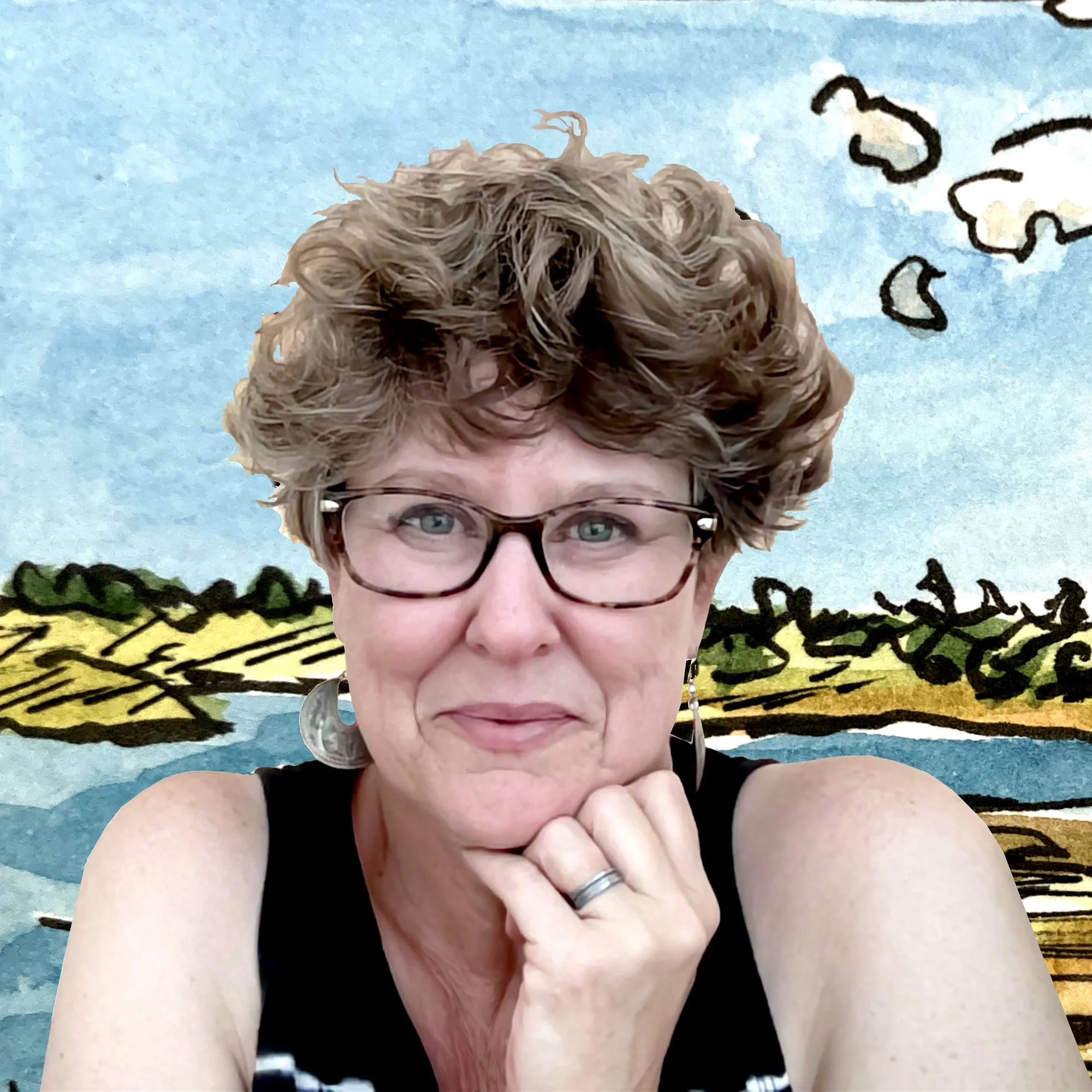
Kate Rutter
DESIGNER & SKETCHNOTER
Kate Rutter is an avid nature journaler, sketchnoter, graphic facilitator, and designer who helps people make creative connections with nature through observation, curiosity, and wonder. A lifelong sketcher with an experimental and rambunctious visual practice, she creates visual explanations that make complex ideas simple, memorable, and shareable. Kate’s education work spans online teaching, corporate and nonprofit trainings and conferences, and nature journal workshops at public & private gardens and nurseries. Kate is a board member of the Wild Wonder Foundation and holds a B.A. in Studio Art from Wellesley College. She instas at @katerutter and blogs at www.intelleto.com.
-

Lucy Grignon
Pitāēpanuhkiw Lucy Grignon is an enrolled member of the Stockbridge-Munsee Band of Mohican Nation and a direct descendant of the Menominee Nation, Muh-he-con-ne-ok being of the People of the Waters that are never still, and Menominee being of the Ancient movers. She is a passionate community-taught chef, educator, teacher, Momma, photographer, artist, writer, doula, and advocate for her community and the world around her. She is developing her relationship with Grandmother Earth. Her family owns an Indigenous Homestead called Ancient Roots in Bowler, Wisconsin, where they research traditional gardening practices from their ancestors dating back from ages ago to the present day. They use a combination of ancestral methods to learn, preserve, grow, seed save, reconnect, and share. They are working to reconnect to their cultural inheritance through the land, plants, medicines, and wildlife. Lucy's connections to her Indigenous roots come in many forms, from her language journey to the stories of her elders, her people, and their healing together.
-

Michael Kleber-Diggs
LAB FACILITATOR
Michael Kleber-Diggs is a poet, essayist, and literary critic. His debut poetry collection, Worldly Things (Milkweed Editions, 2021), won the Max Ritvo Poetry Prize. Among other places, Kleber-Diggs’ writing has appeared or is forthcoming in Poem-a-Day, Poetry Daily, Poetry Northwest, Potomac Review, Hunger Mountain, Memorious, and various anthologies. Since 2016, Michael has been an instructor with the Minnesota Prison Writing Workshop. He also teaches Creative Writing in Augsburg University’s low-res MFA program and at Saint Paul Conservatory for Performing Artists. He lives in Minneapolis.
-
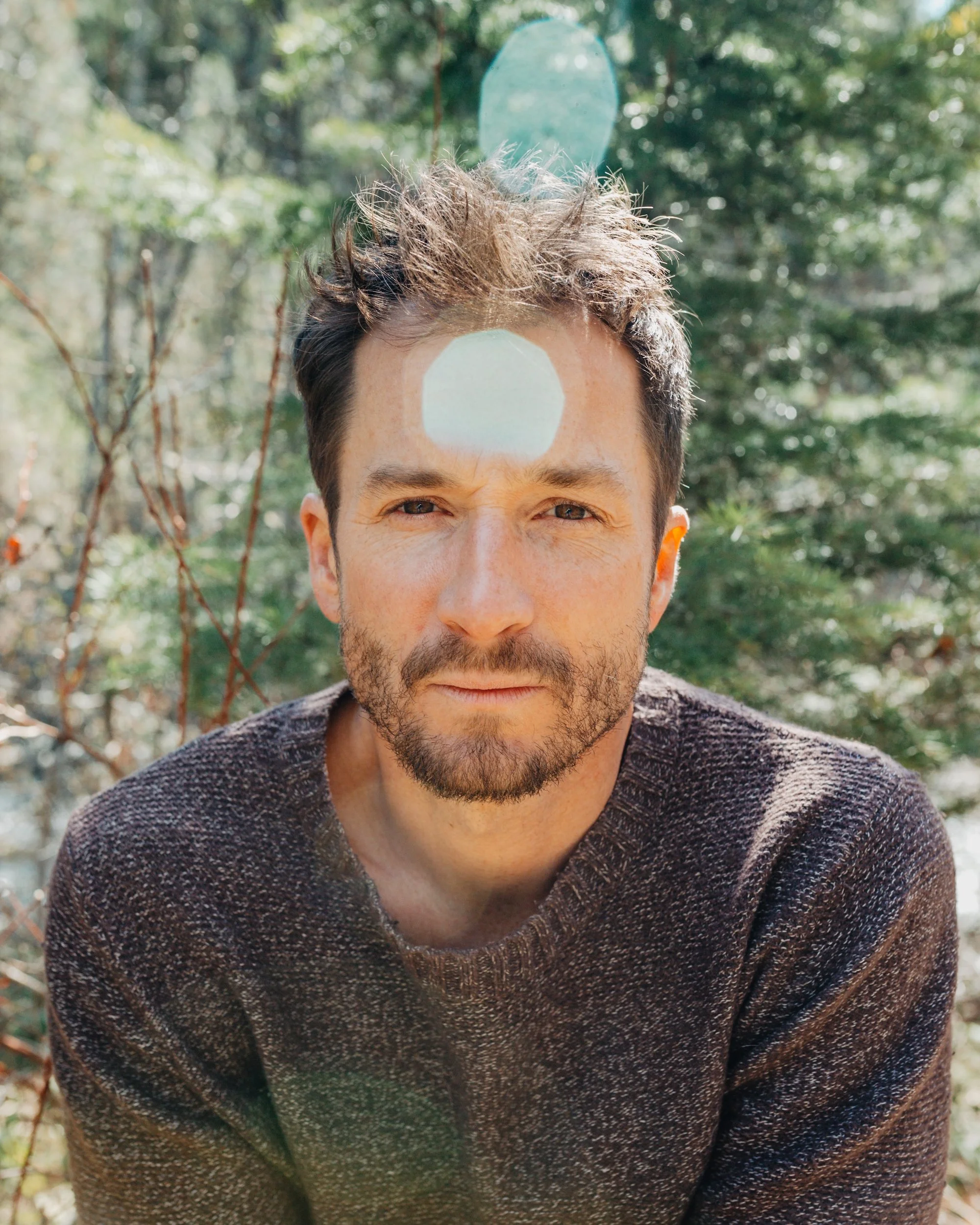
Nicholas Triolo
WORKSHOP TEACHER + COMMUNICATIONS CONSULTANT
Nicholas Triolo is a writer, educator, long-distance runner, and editor with over twelve years of experience in the publishing industry. He holds a Master’s of Science in Environmental Studies (Creative Nonfiction) from the University of Montana. Previous editorial roles included editor-in-chief of Camas, digital strategist for Orion, and senior editor for Outside/Trail Runner. He’s currently managing editor for Ecotrust’s bioregional storytelling platform, Magic Canoe. Triolo has also been a long-time advocate and organizer for clean water and climate change, and has written and directed two documentary films, “The Crossing” and “Shaped by Fire,” that have been Official Selections for several international film festivals. He collaborated with Salomon on a film, "The Musician," about touring and training Death Cab for Cutie frontman Ben Gibbard. Triolo has taught at the University of Montana, Wild Rockies Field Institute, and the Freeflow Institute, and his work is featured in Orion, Outside, The Dark Mountain Project, Terrain.org, Emergence (forthcoming), the Wild & Scenic Film Festival, Patagonia’s Dirtbag Diaries, and others. His first book, The Way Around, will be published in July 2025, by Milkweed Editions. More at nicholastriolo.net.
-
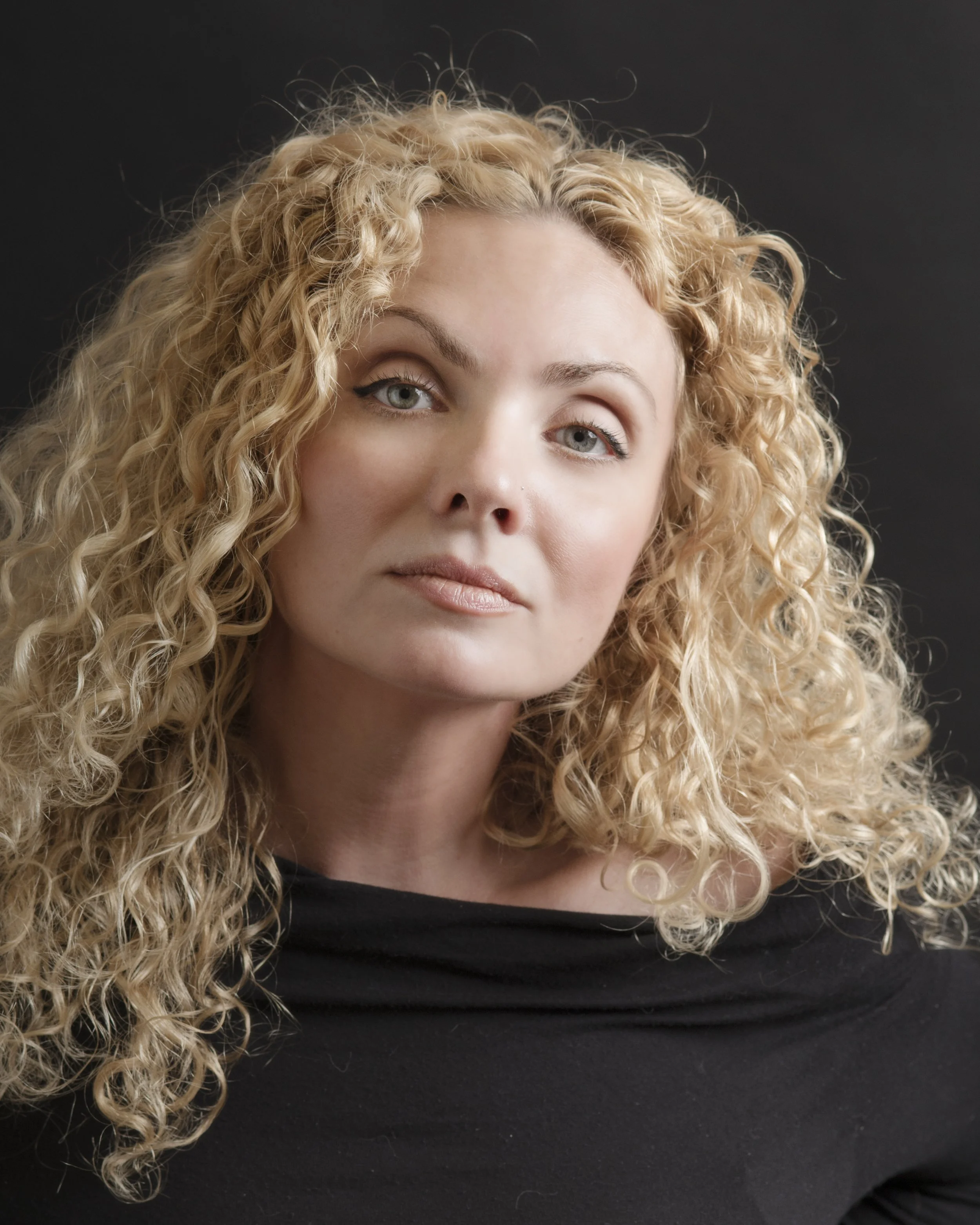
Nickole Brown
LAB FACILITATOR + READING & INTERVIEW GUEST
Nickole Brown is author of Sister as well as Fanny Says, which won the Weatherford Award for Appalachian Poetry. Currently, she lives in Asheville, NC, where she volunteers at several different animal sanctuaries. Since 2016, she’s been writing about these animals. To Those Who Were Our First Gods, a chapbook of these first nine poems, won the 2018 Rattle Prize, and her essay-in-poems, The Donkey Elegies, was published by Sibling Rivalry Press in 2020. Her poem “Parable” won the 2024 Treehouse Climate Action Poem Prize. Every summer, she teaches as part of the low-residency MFA Program at the Sewanee School of Letters. She’s a Fellow of the Black Earth Institute and works full-time as President of the Hellbender Gathering of Poets, a nonprofit organization that aims to nurture a community hellbent on finding the words that protect and repair our climate-changed world. Hellbender's first annual poetry festival is set to launch in Black Mountain, NC, in October of 2026.
-
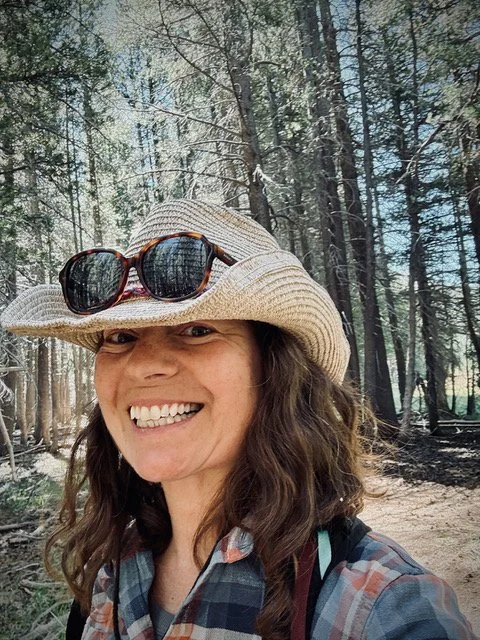
Nina Madjid
ZINE DESIGNER
Nina Madjid is an artist, graphic designer, process art teacher, community organizer, restorative justice facilitator, lifelong camper and wilderness explorer. She has been designing printed material for almost 30 years, with an affinity for books, magazines and catalogs, and an eye for simplicity and purpose. She also runs artScamp, a place to explore creative arts in community, where the focus is on individual’s creativity and process rather than the final product. Nina holds a BS from Boston University in advertising design and art history, and a professional degree from University of San Diego in leadership and facilitation of restorative justice. She holds community care circles in and around LA and serves on the board of the AMZ foundation, a non-profit that funds education and healthcare in Afghanistan. Originally from Boston Proper, Nina lives in Los Angeles, with her husband, son, two cats and a pitbull, making art and dreaming of a creekside cabin in the forest.
-

Renata Golden
LAB FACILITATOR
Renata Golden’s essay collection Mountain Time: A Field Guide to Astonishment was published by CSU Press/UGA Press in 2024. In addition to winning the Southwest Book Award, these essays have been finalists for the River Teeth Nonfiction Contest, Penelope Niven Creative Nonfiction Award, Annie Dillard Award for Creative Nonfiction, Center for Documentary Studies at Duke University Award, and the New Mexico/Arizona Book Award, among others. Her essays and poems have been published or are forthcoming in Black Warrior Review, Creative Nonfiction, True Stories, Border Crossing, About Place Journal, Chautauqua, Terrain.org, and many other literary journals. Her work has been anthologized in Dawn Songs: A Birdwatcher’s Field Guide to the Poetics of Migration by Talking Waters Press (ed: J. Drew Lanham and Jamie K. Reaser); The Nature of Our Times (Paloma Press/Wick Poetry Center at Kent State University/Poets for Science); First and Wildest: The Gila Wilderness at 100 by Torrey House Press (ed: Elizabeth Hightower Allen); and When Birds Are Near from Cornell University Press (ed: Susan Fox Rogers). She was awarded a New Mexico Writers Douglas Preston travel grant and has held residencies at Storyknife in Alaska and Write on, Door County. She currently serves as reviews editor and board member for Terrain.org. Renata earned an MFA from the University of Houston. Originally from the South Side of Chicago, she now lives in Santa Fe, New Mexico.
-

Rick Lindroth
SCIENCE ADVISOR & EDITOR
Rick Lindroth, Ph.D., is a Vilas Distinguished Achievement Professor of Ecology (Emeritus) and former Associate Dean for Research at the University of Wisconsin-Madison, and a Distinguished Fellow of The Lumen Center (Madison, WI). His research focused on the ecology of temperate forest ecosystems, with emphases on global environmental change, chemical ecology, and trophic dynamics. He has been a Fulbright Fellow and is an elected Fellow of the American Association for the Advancement of Science (AAAS), the Ecological Society of America, the Entomological Society of America, and the American Scientific Affiliation. Rick has authored nearly 250 scientific articles and book chapters, and has served as an editor for multiple ecological journals. As a dean for research, he functioned as the Chief Research Officer for the UW-Madison College of Agricultural and Life Sciences. Rick speaks and writes to public and faith-based groups about environmental stewardship, climate change, biodiversity, and science denialism/communication. He serves on the Board of Directors for A Rocha USA and is a member of the BioLogos Voices speaker’s bureau. Rick and his wife live in Madison, Wisconsin, where they raised two daughters and now host, too infrequently, four grandchildren. Rick is most at home on a Driftless Region spring creek, parsing the fine differences between theology and flyfishing.
-
Rowen White
LAB FACILITATOR
Rowen White is a Seed Keeper/farmer and author from the Mohawk community of Akwesasne and a passionate activist for Indigenous seed and food sovereignty. She is the Creative Director of Sierra Seeds, an innovative Indigenous seed bank and land-based educational organization located in North San Juan, CA. Rowen is the founder of the Indigenous Seedkeepers Network, which is committed to restoring the Indigenous Seed Commons, and currently serves as a Cooperative Seed Hub Coordinator. She facilitates creative hands-on workshops and strategic conversations in community around seed/food security around the country within tribal and small farming communities. She believes that by cultivating creative supportive learning spaces, reclaiming narratives, and practicing radical imagination, we can work together to seed the change for a more equitable and beautiful relational, kincentric food system that centers around a deep sense of belonging and connection. She weaves stories of seeds, food, culture, and sacred Earth stewardship on her blog, Seed Songs, and other distinguished publications. Follow her journeys at www.sierraseeds.org.
-

Stephanie Jenkins
CREATIVE PROMPT CO-WRITER
Stephanie Jenkins is a soul companion, sacred space holder, ritual weaver and storyteller. Through ceremonies around the wheel of the year, online courses, and 1:1 soul tending, Stephanie holds space for women+ to deepen into their own inner wisdom, connect to body and soul, and participate more deeply in the dance of the sacred earth and divine mystery. When she is not banging on her drum or making big creative messes, Stephanie can be found exploring the wild edges of Los Angeles, ancestral lands of the Tongva and Chumash people.
-

Sun Yung Shin
LAB FACILITATOR
Sun Yung Shin was born in Seoul, Korea and was raised in the Chicago area. She is a poet, writer, and cultural worker. Shin is the author of the poetry collections Six Tones of Water (Ricochet Editions), The Wet Hex (Coffee House Press, 2022); Unbearable Splendor (Coffee House Press, 2016), winner of the 2016 Minnesota Book Award for poetry and finalist for the 2017 PEN USA Literary Award for Poetry; Rough, and Savage (Coffee House Press, 2012); and Skirt Full of Black (Coffee House Press, 2007), winner of the 2007 Asian American Literary Award for poetry. Her debut memoir Heart Eater: A Memoir of Immigration, Belonging, and How We Find Ourselves in Language is forthcoming with Black Lawrence Press in 2026.
2024-2025 Guests
-

Linnea Axelsson
-

Elizabeth Bradfield
-
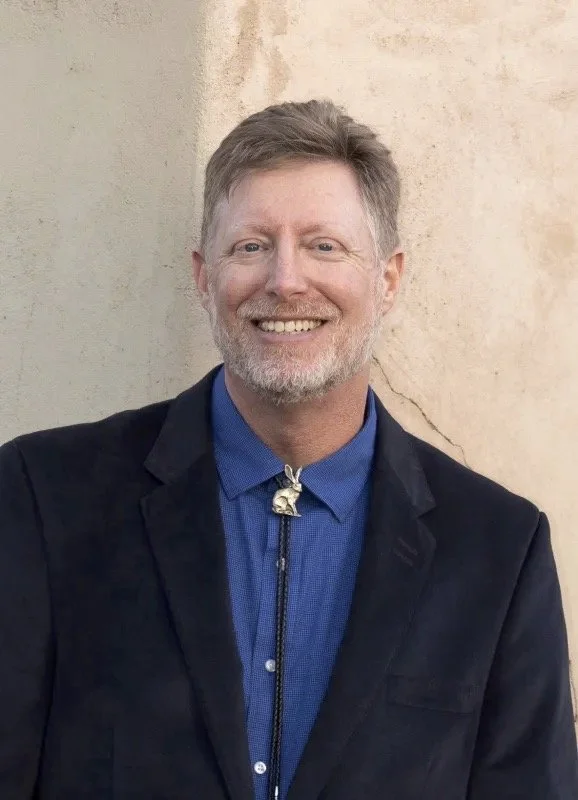
Simmons Buntin
-

Leah Renee Chambers
-

Kaitlin Curtice
-

Geffrey Davis
-

David James Duncan
-

Iris Jamahl Dunkle
-

Jamie Ford
-

John Freeman
-

CMarie Fuhrman
-

Sean Hill
-

Pam Houston
-

Stephanie Jenkins
-

Obi Kaufmann
-
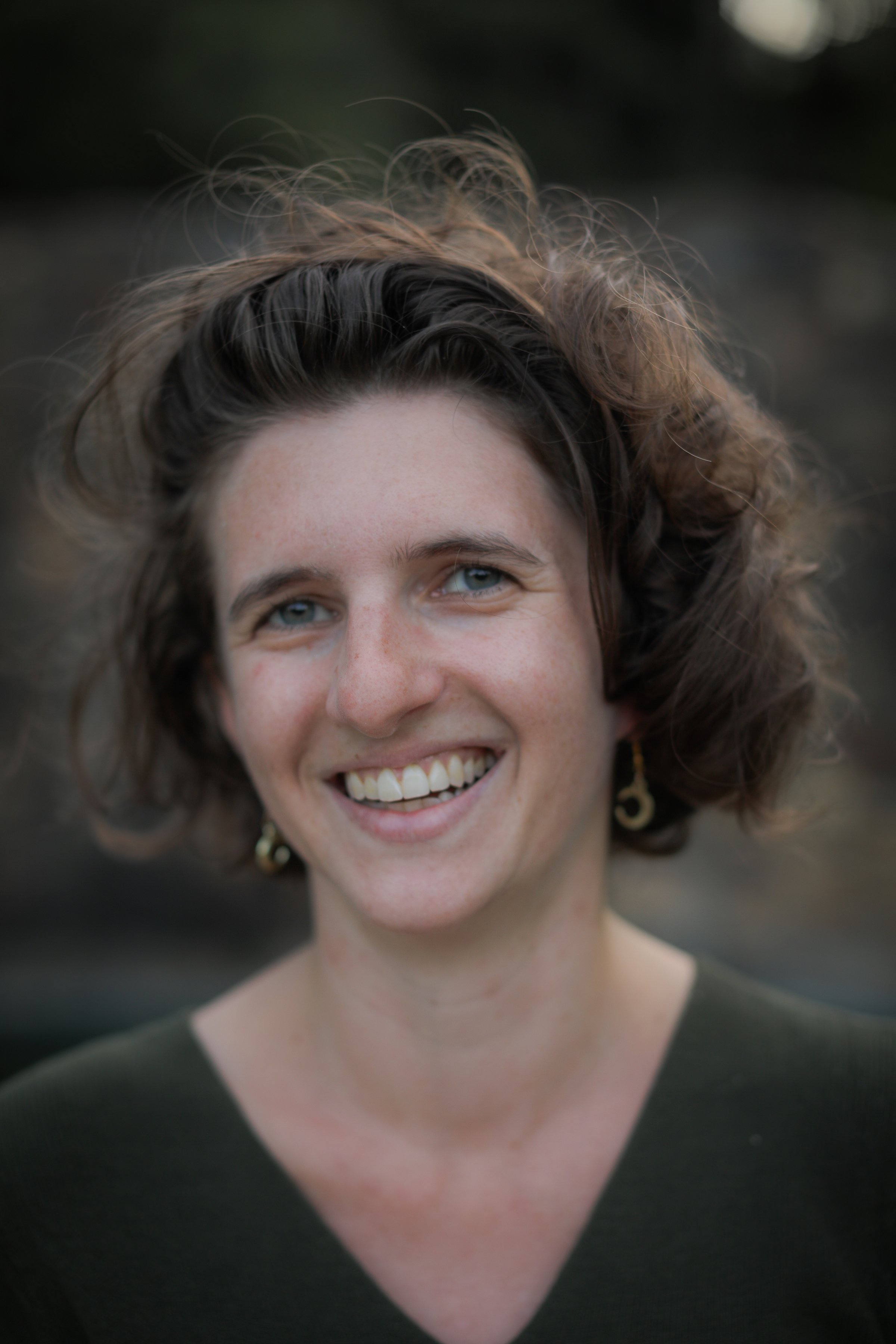
Caroline Kessler
-

Michael Kleber-Diggs
-
Chris La Tray
-
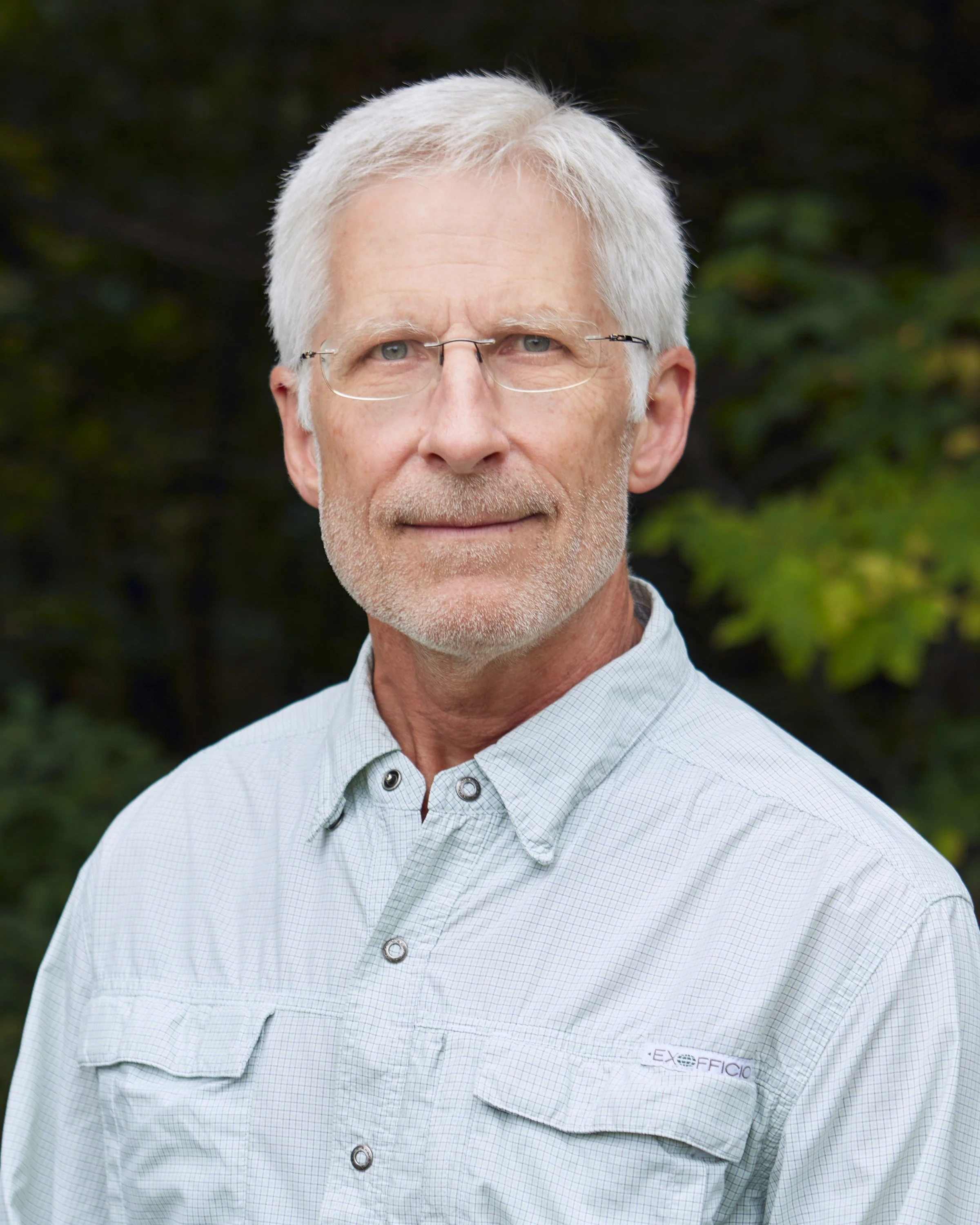
Rick Lindroth
-

Laura Pritchett
-

Meg Reid
-

Kate Rutter
-
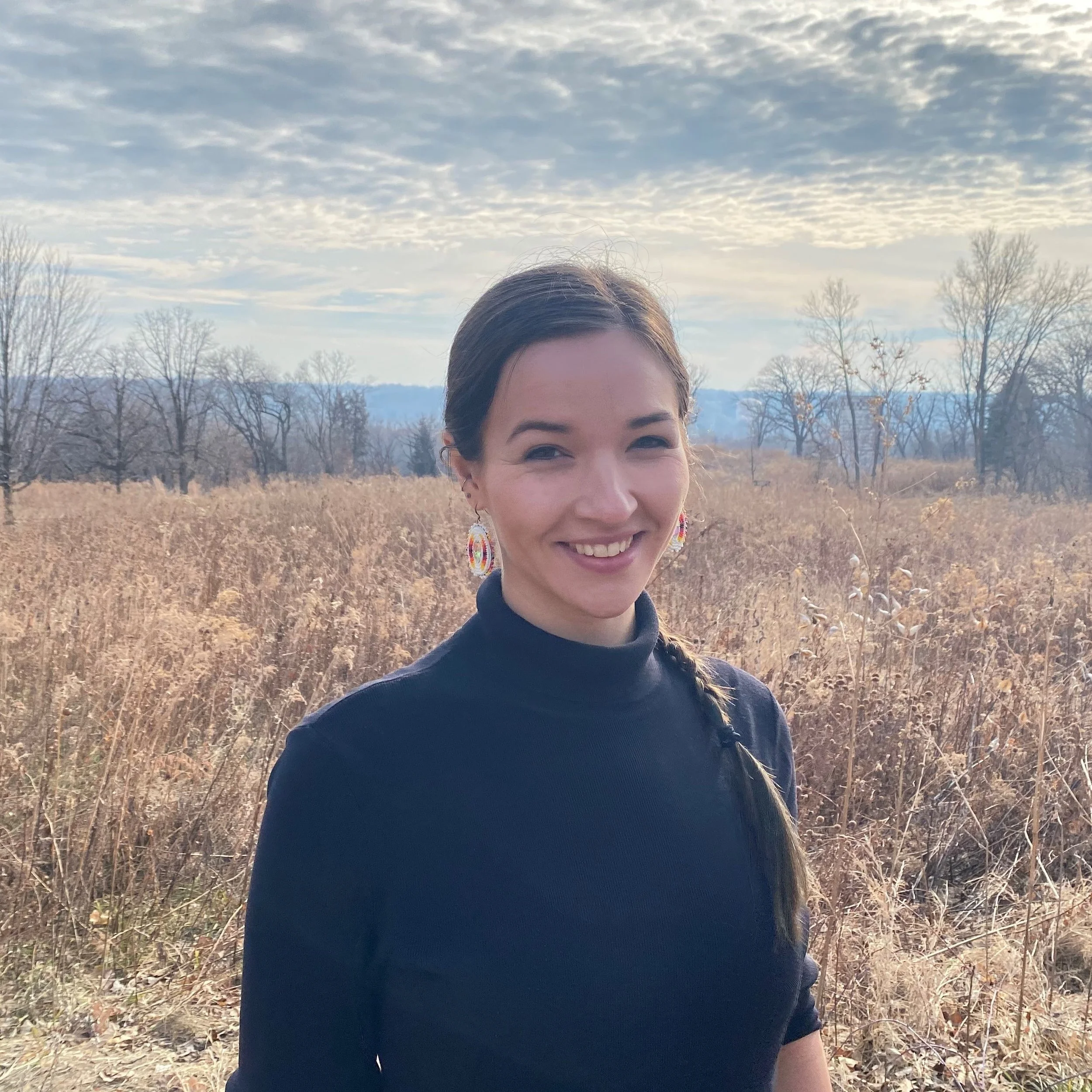
Abby Sunde
-

Amy Tan
-

Pamela Uschuk
-
Rowen White
-

Ryo Yamaguchi
2023-2024 Guests
-
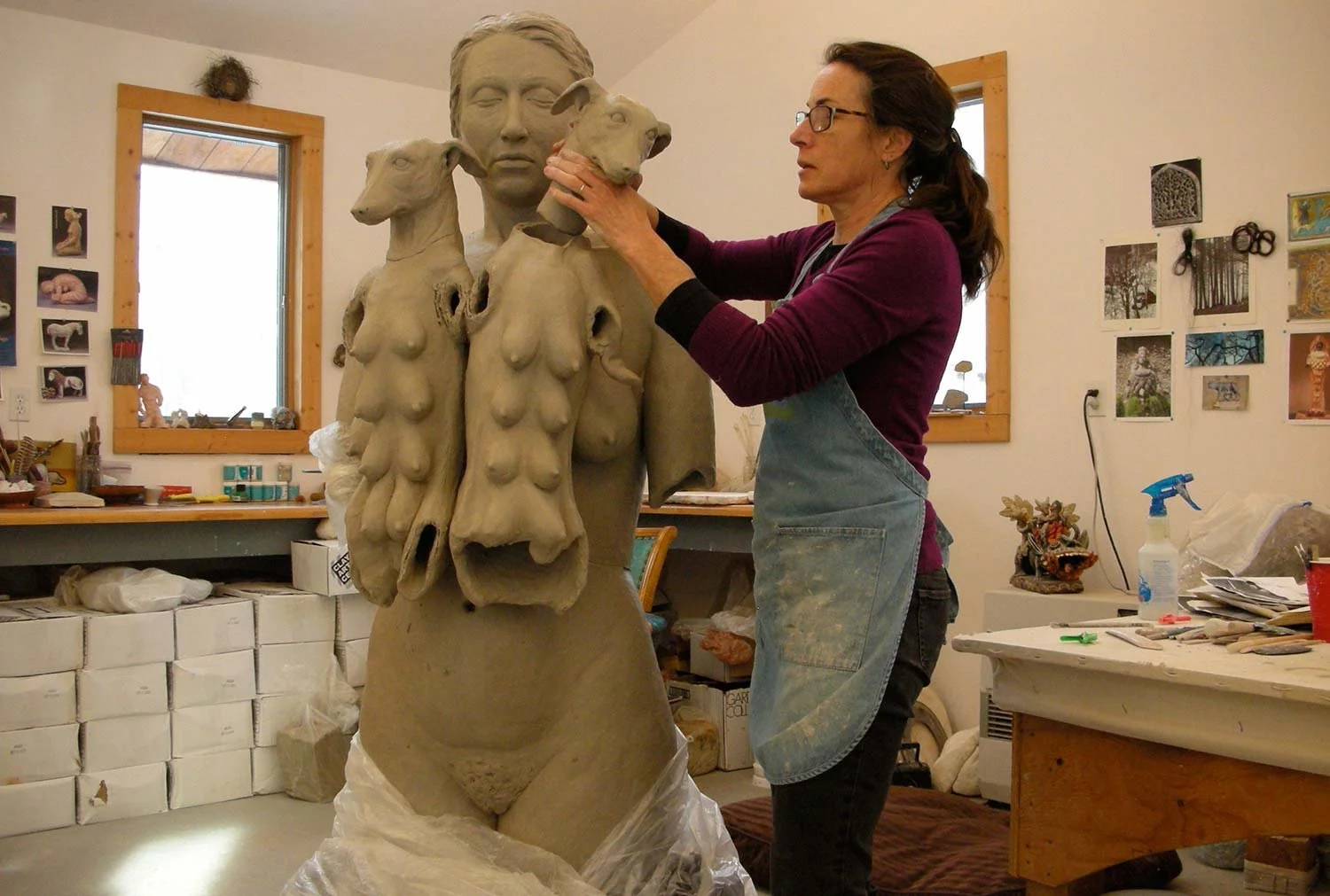
Adrian Arleo
-

Heidi Barr
-

Elizabeth Bradfield
-

Kaitlin Curtice
-

David James Duncan
-

Camille Dungy
-

Debra Magpie Earling
-
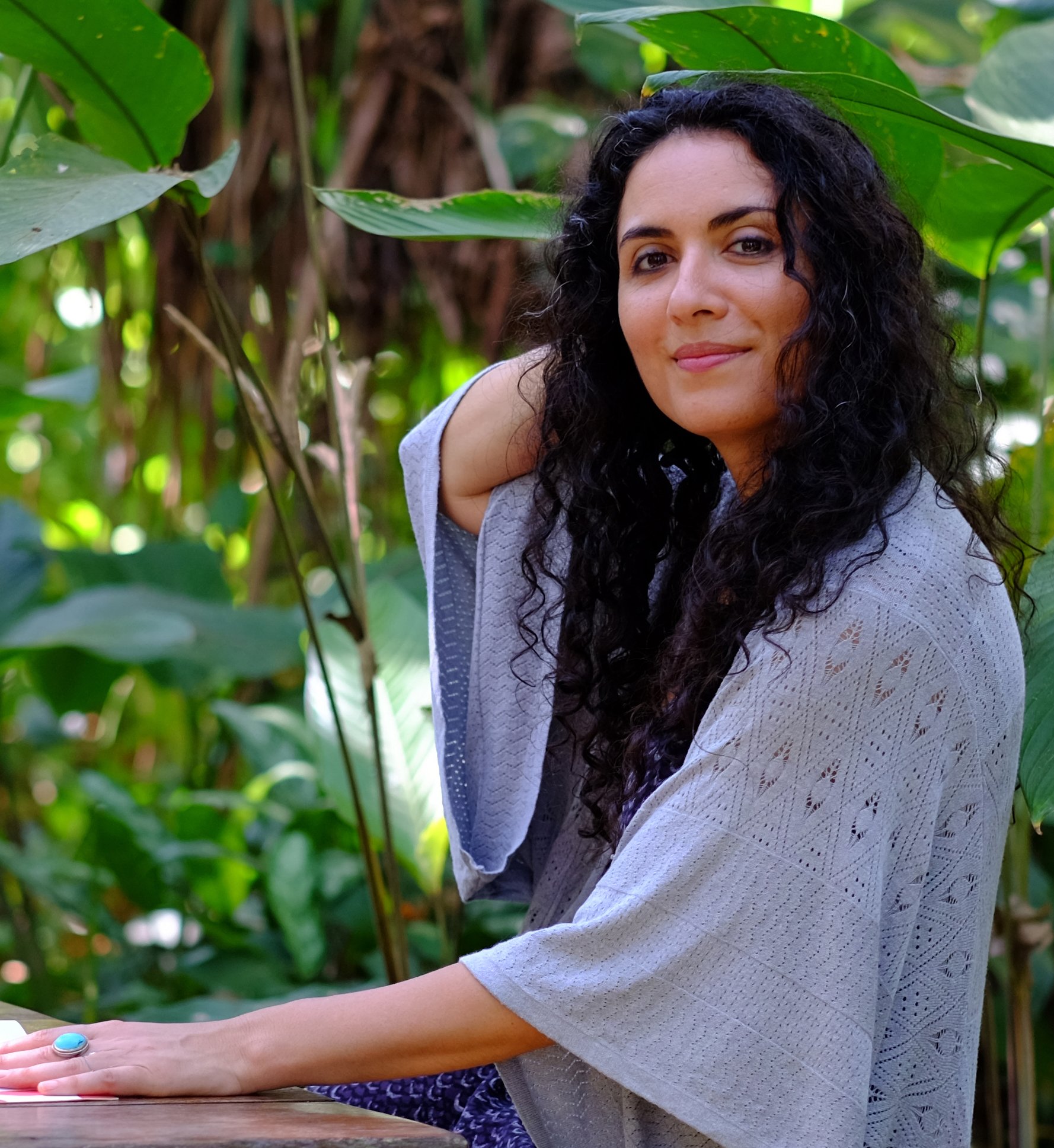
Haleh Liza Gafori
-

Adam Himebauch
-

Caroline Kessler
-

Michael Kleber-Diggs
-
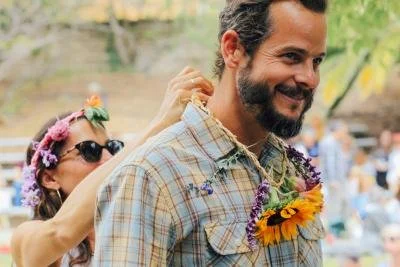
Teddy Macker
-

Samantha Martin-Bird
-

Osheta Moore
-
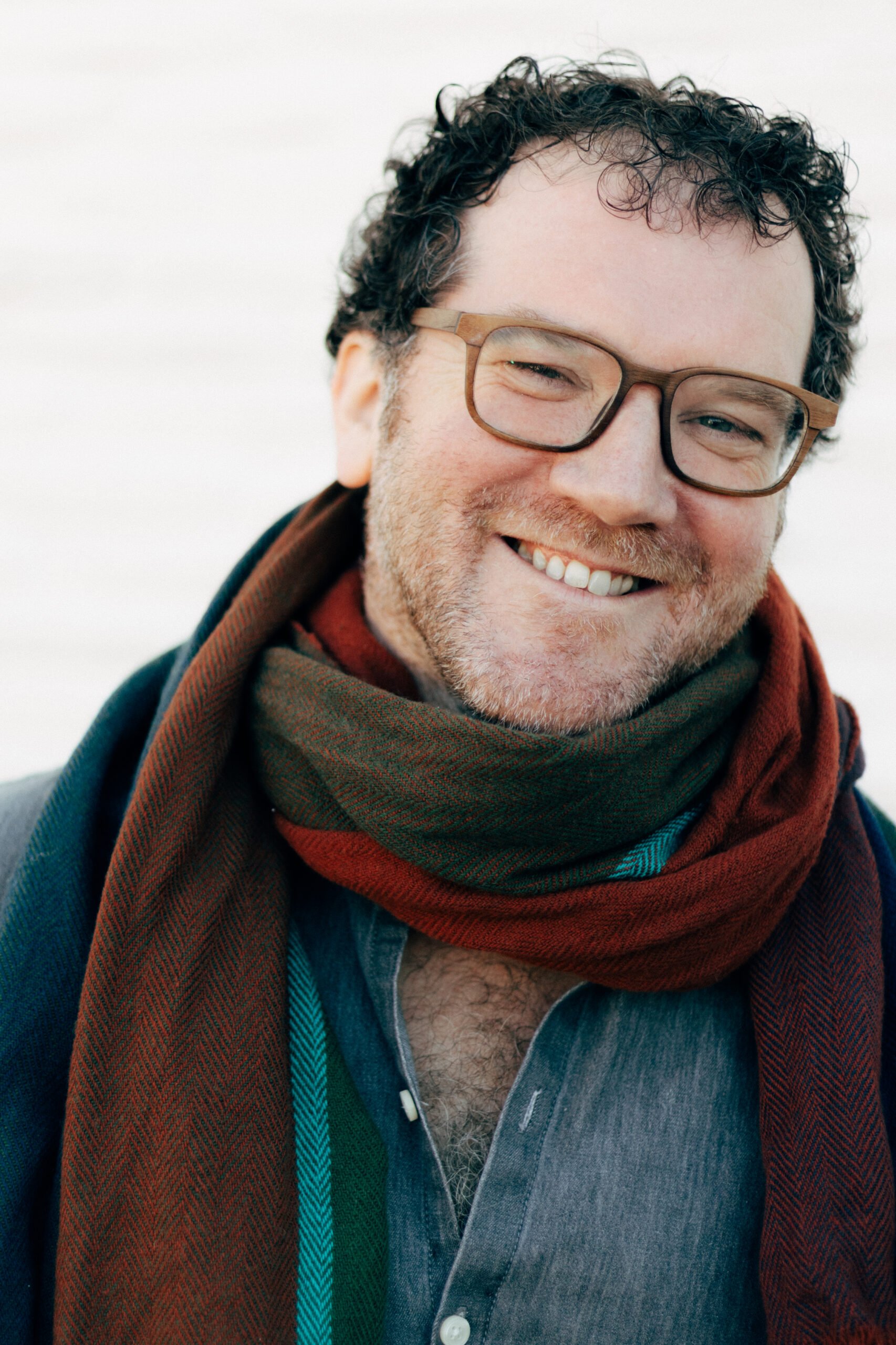
Pádraig Ó Tuama
-
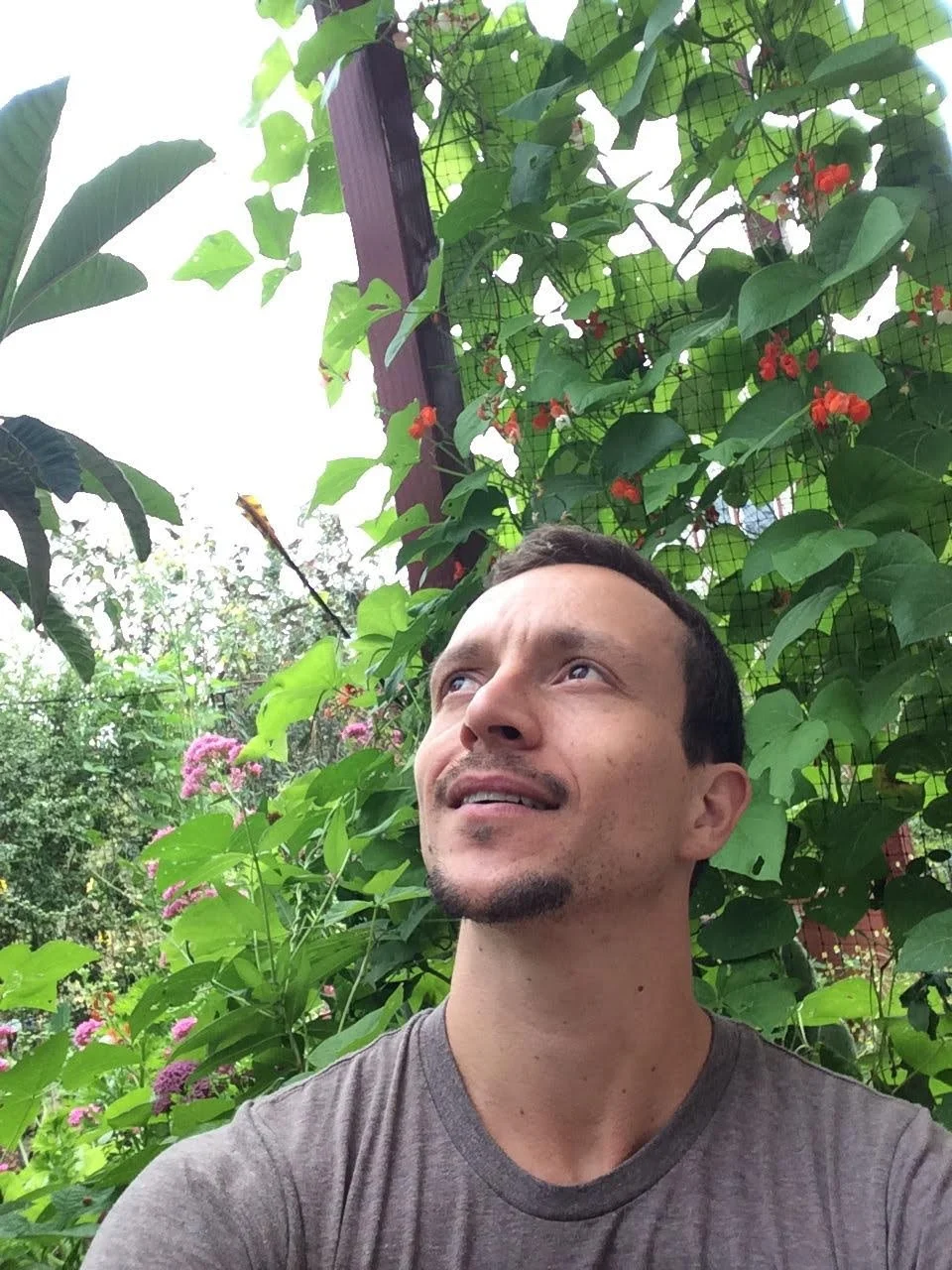
Marley Peifer
-
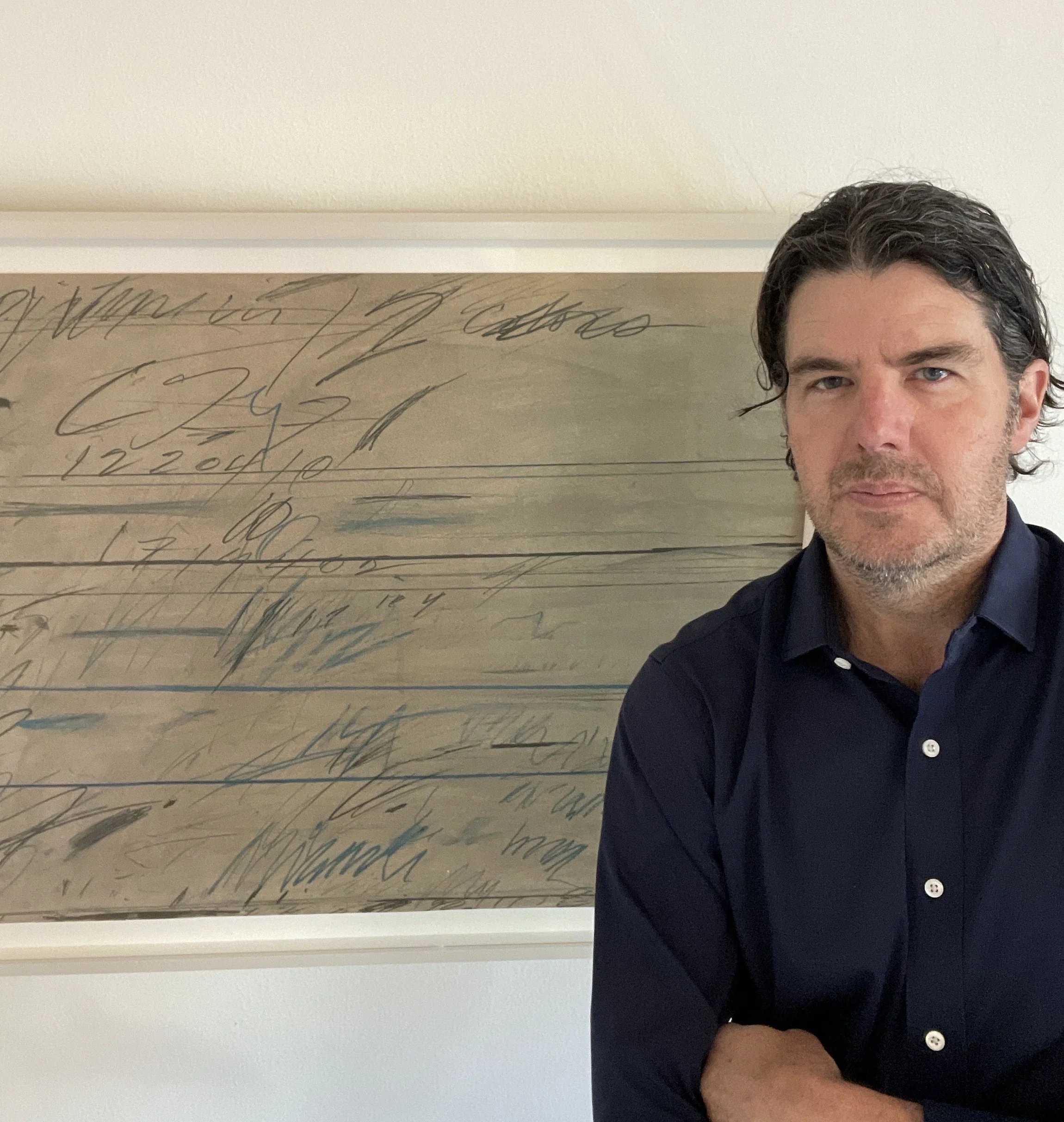
Dean Rader
-
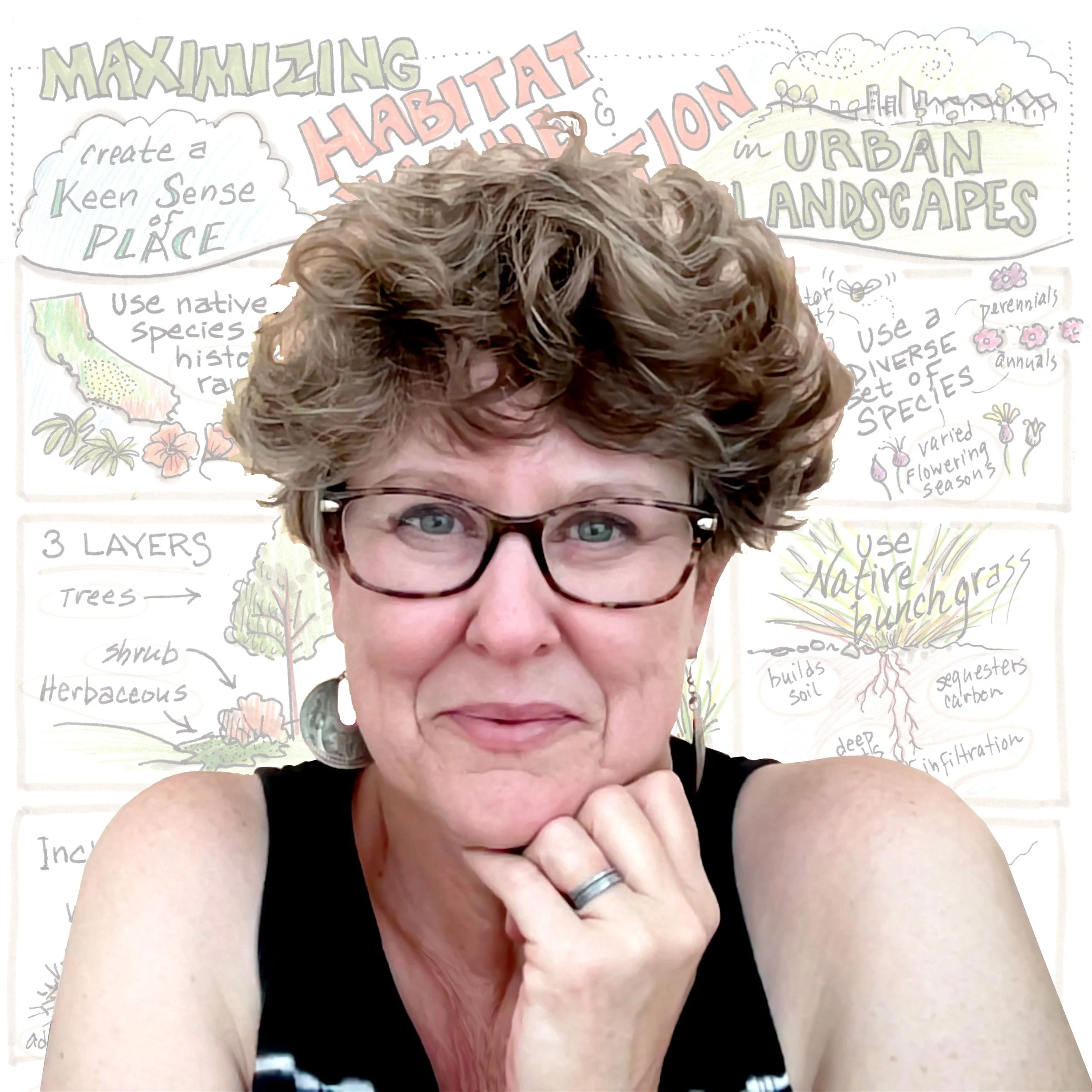
Kate Rutter
-
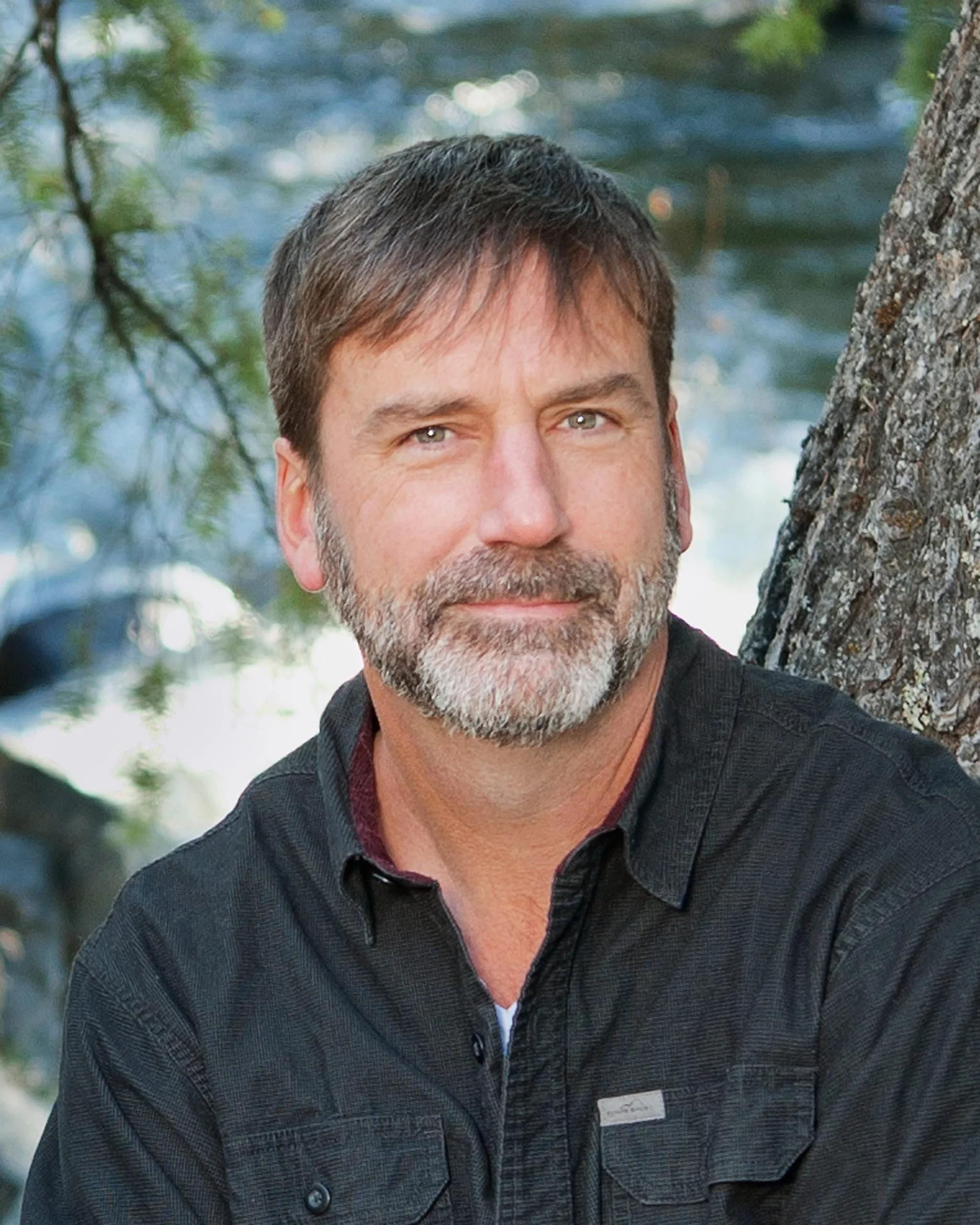
Derek Sheffield
-

Matthew Shenoda
-

Eric Smith
-

Maggie Smith
-

Brian Turner
-
Rowen White

The story behind Writing the Wild
—Krissy Kludt
Several years ago, I texted my father from a snowbound house in Tahoe, where I was spending a weekend away from my Bay Area home: “I miss winter so much it hurts.”
“Of course you do,” he told me. “You have a deep sense of place, fully integrated with your sense of self.”
Wisconsin-raised, I’d known lakeshores, streams, and maple forests from childhood. I was born in the middle of a Midwest thunderstorm, welcomed to the world by lightning. Though I had spent a decade in California, this land was not my home. The oak-dotted hills and chaparral were beautiful, but strange.
My father’s words revealed my need to connect with the place I lived, if I were ever to feel at home. I wove weekly hikes into my rhythm. I read the land and books about her with the curiosity of an aspiring naturalist. I came to know where the deer bed down at night, where vultures ride thermal winds on an autumn morning, where the first poppies raise their flaming heads. I learned the names of the grasses.
All this corresponded with a creative awakening. The more time I spent upon the land, the more words flowed out of me. I asked questions of the hills. I pulled at the divine threads that tie me to this land and wrote what I wondered. I found more than metaphor; I found deep connection and real meaning. I discovered that I bloom in poems.
My poetry explores our connection to the earth and one another, weaving together the land and human identity with threads of divine love. It examines the passage of time and the personhood of creation. The writing of it has helped me become more whole, more grounded, and more connected. I’ve discovered creative habits and practices that wax and wane, learning the need for seasonal rhythms of productivity and rest, growth and release. My writing has made me a better human.
My vocation is twofold: to use my words to invite others to see their connectedness to the Earth, the divine, and one another, and to create space where people can deepen those connections through writing. My desire, in the words of Barry Lopez, is “to know and love what we have been given, and to urge others to do the same” (Lithub.com 2020).

